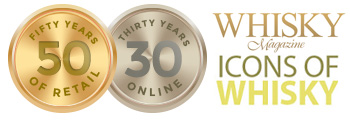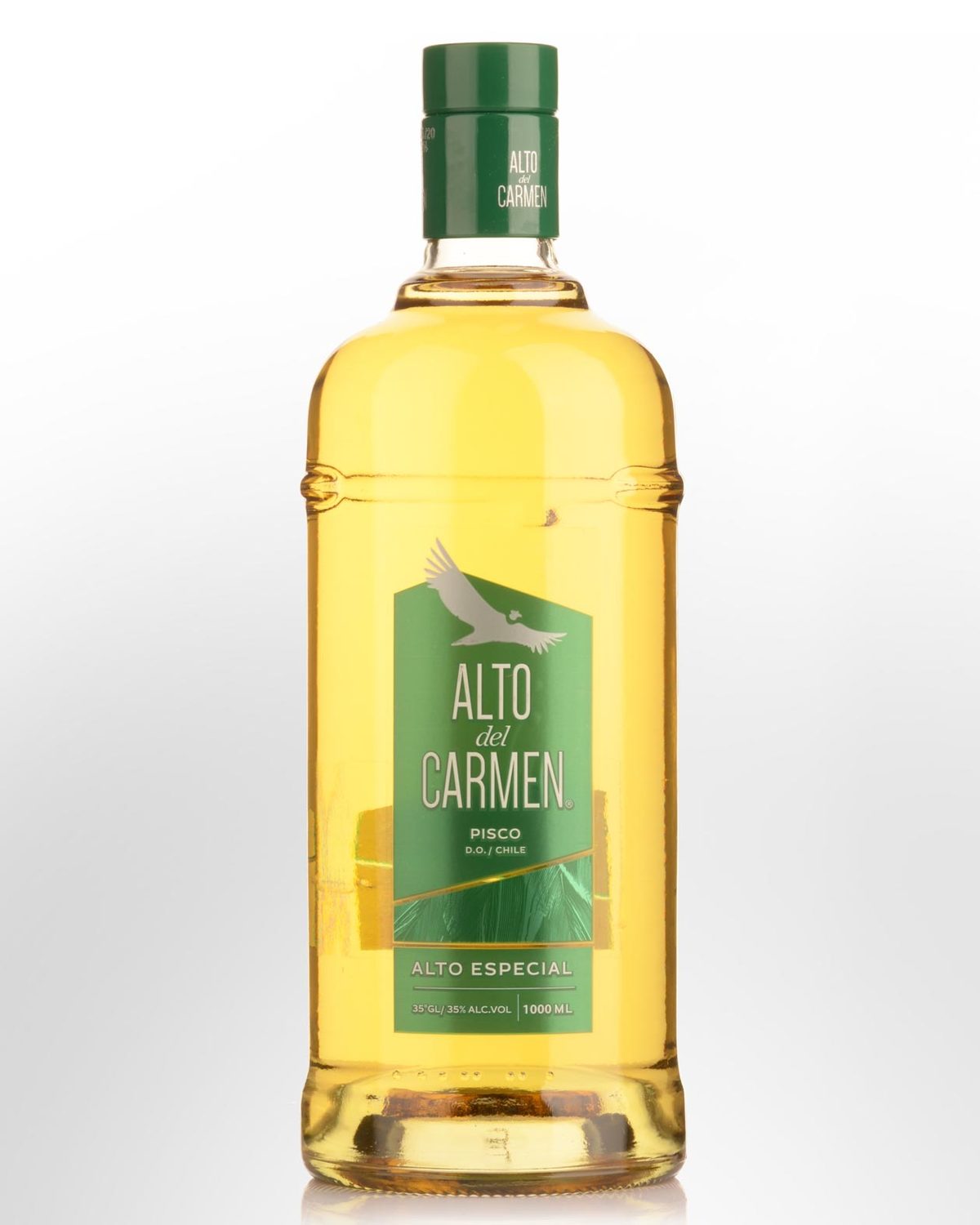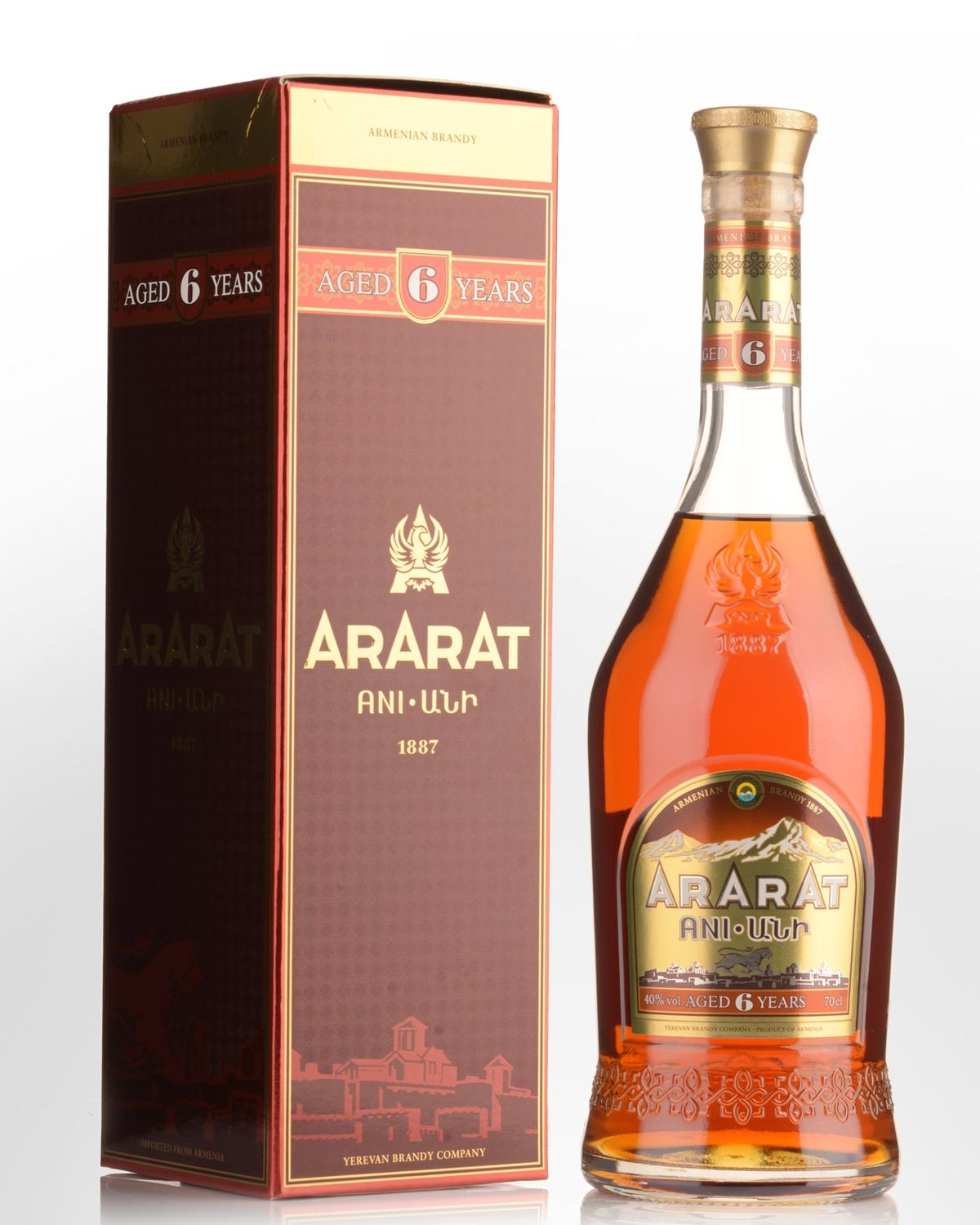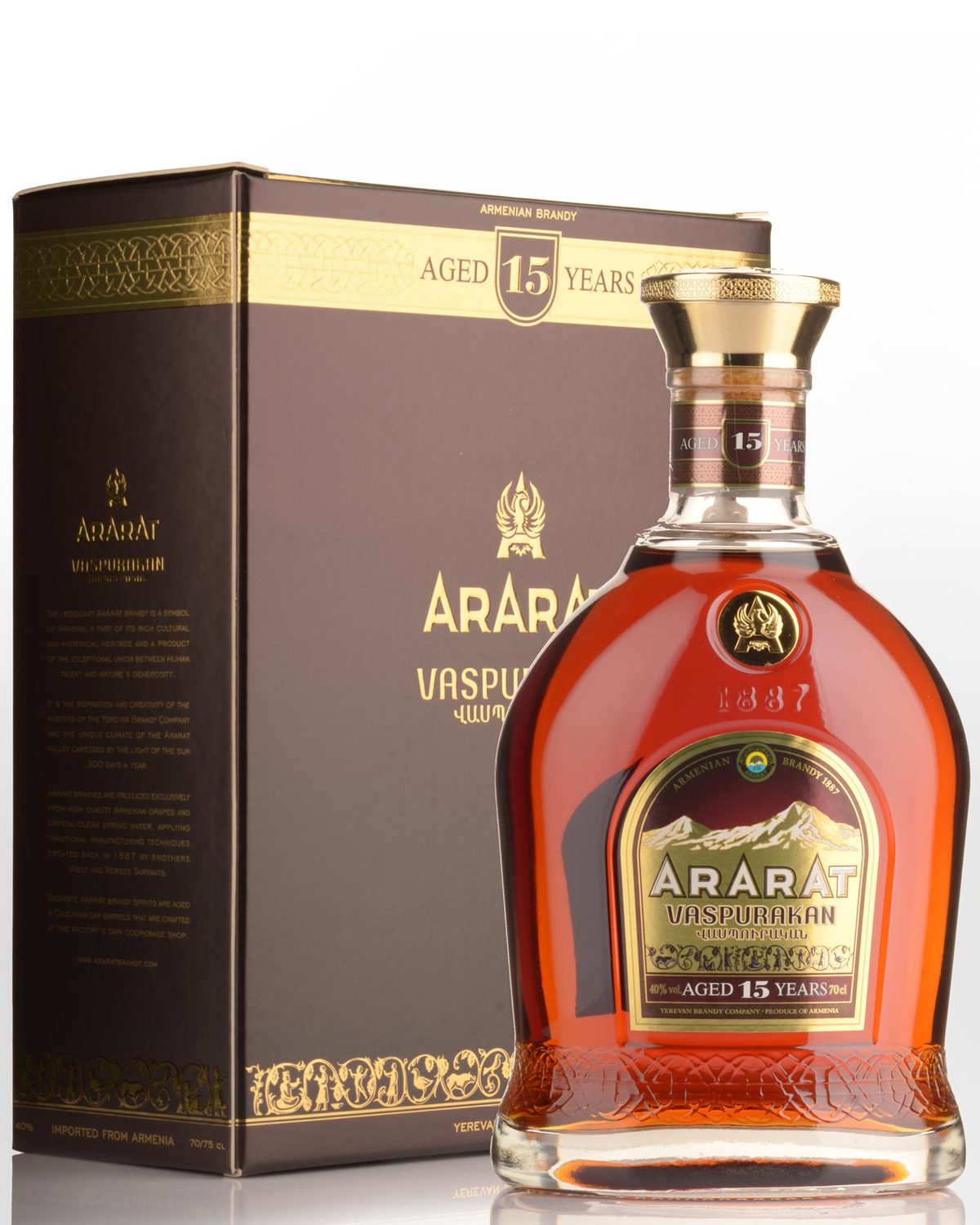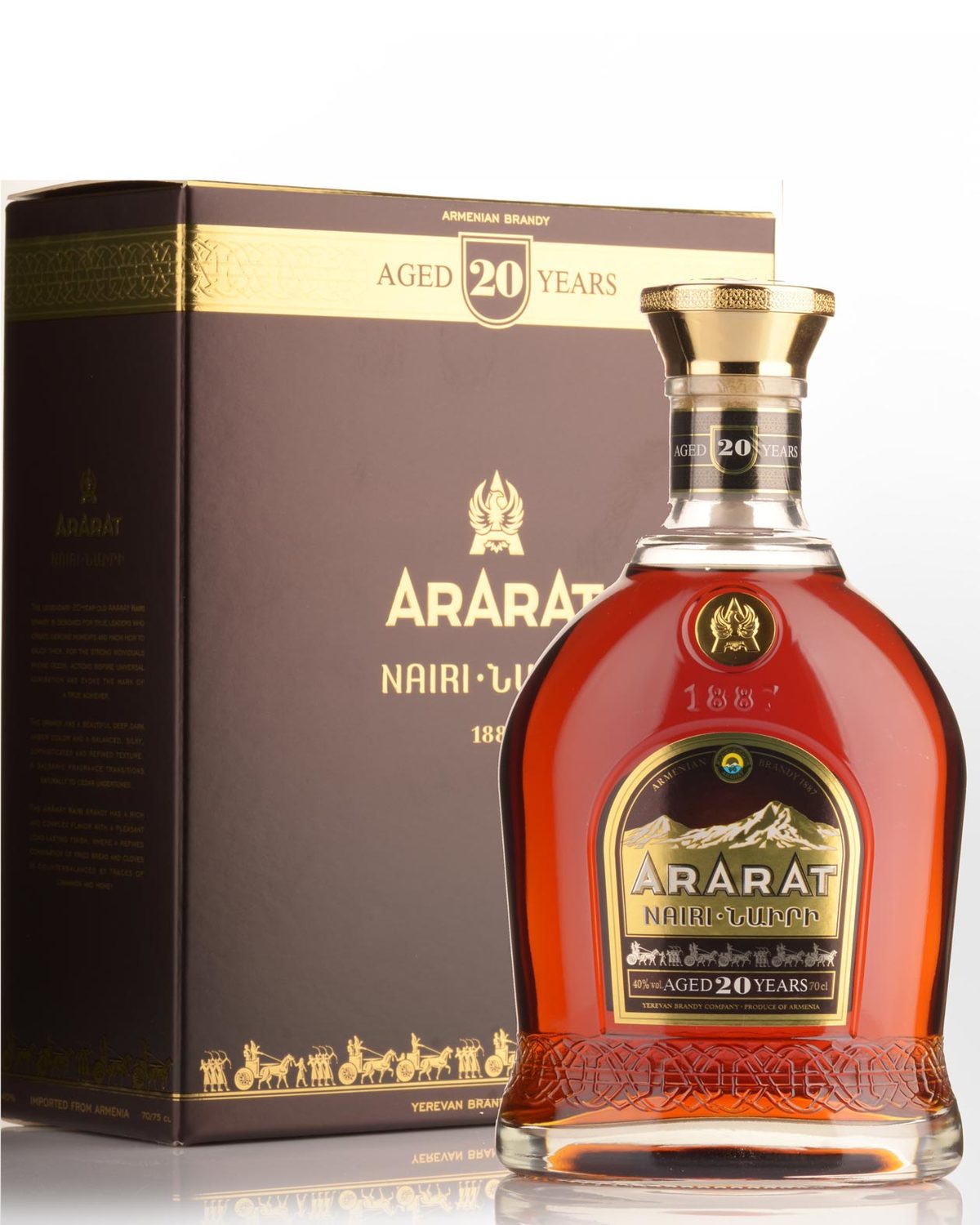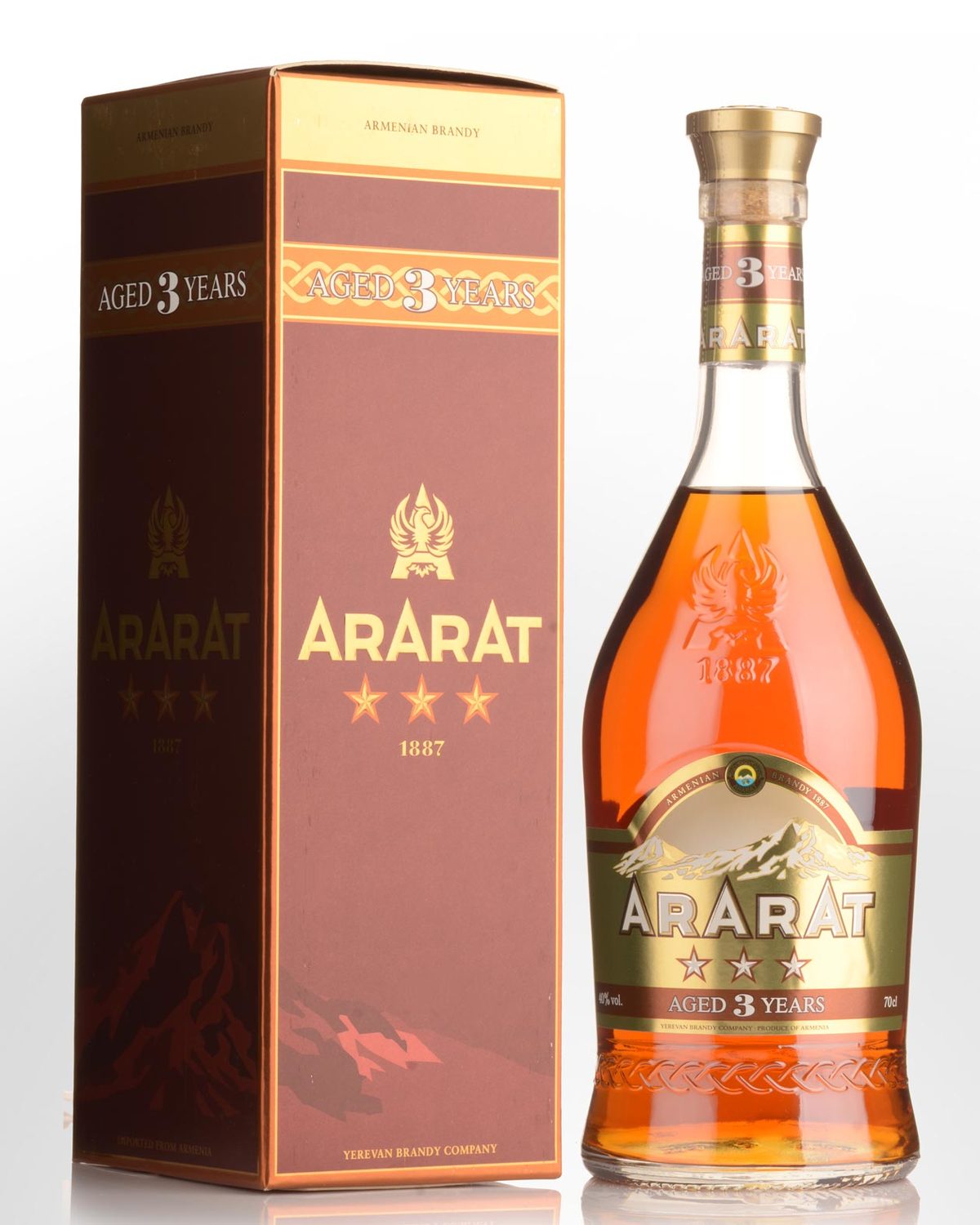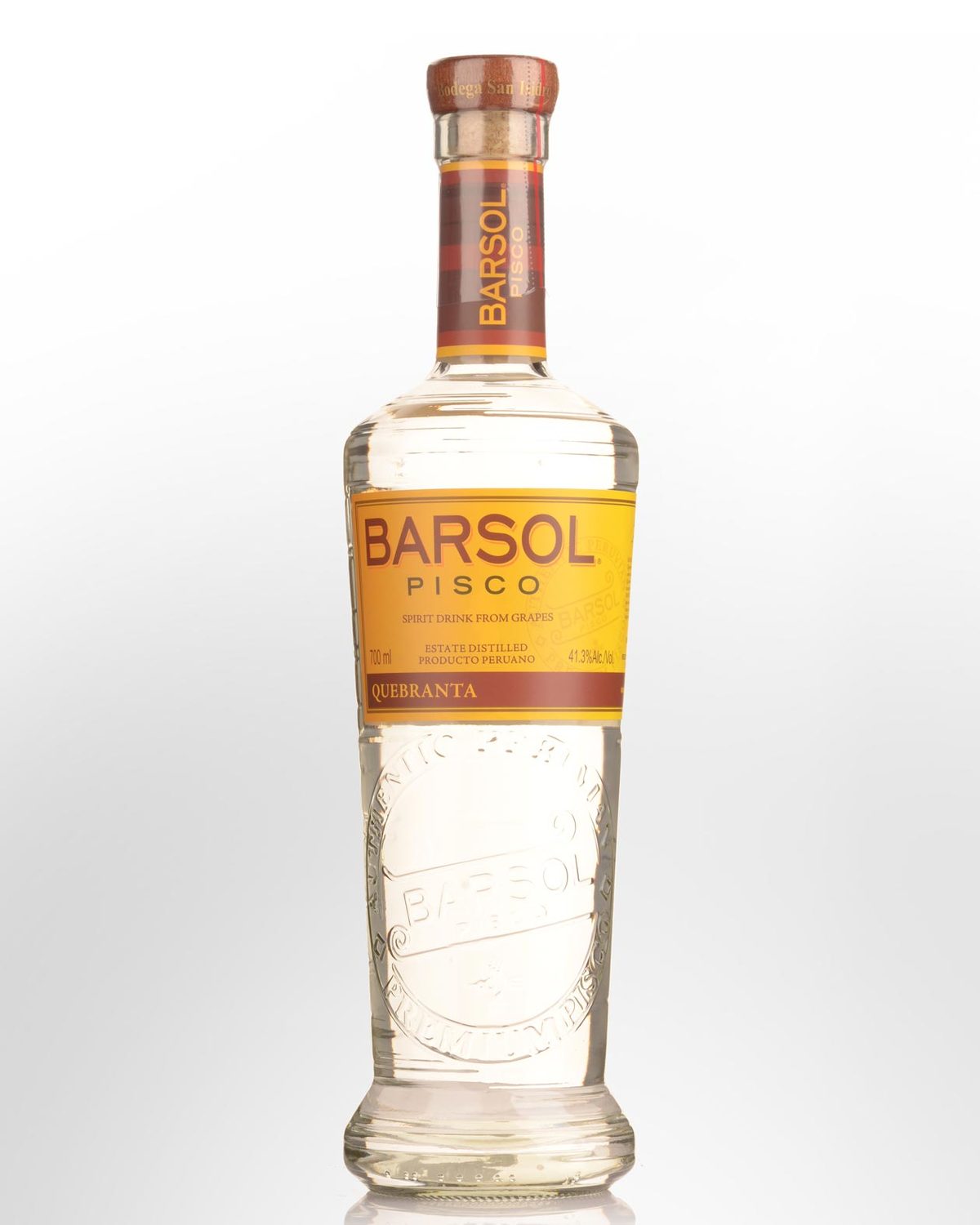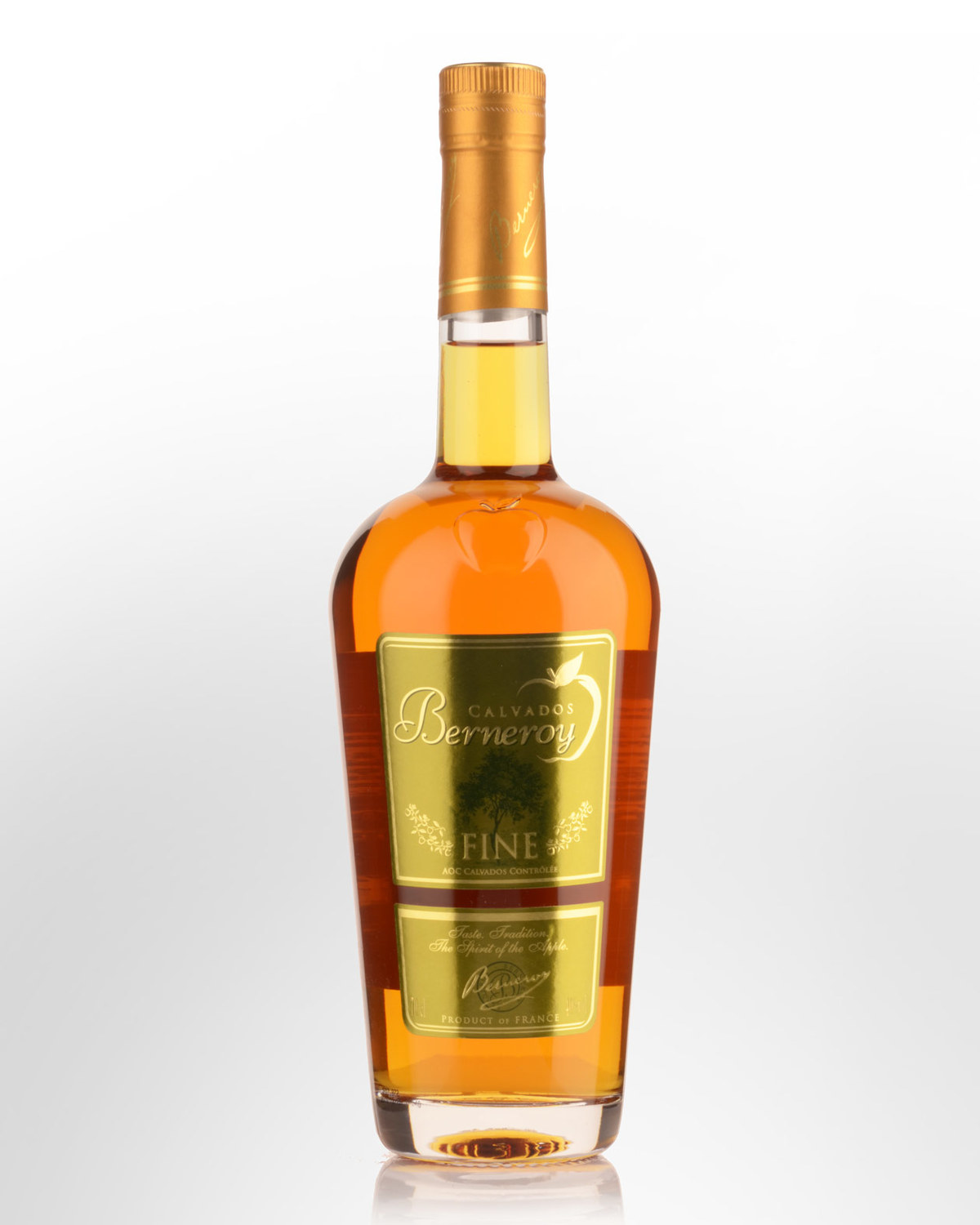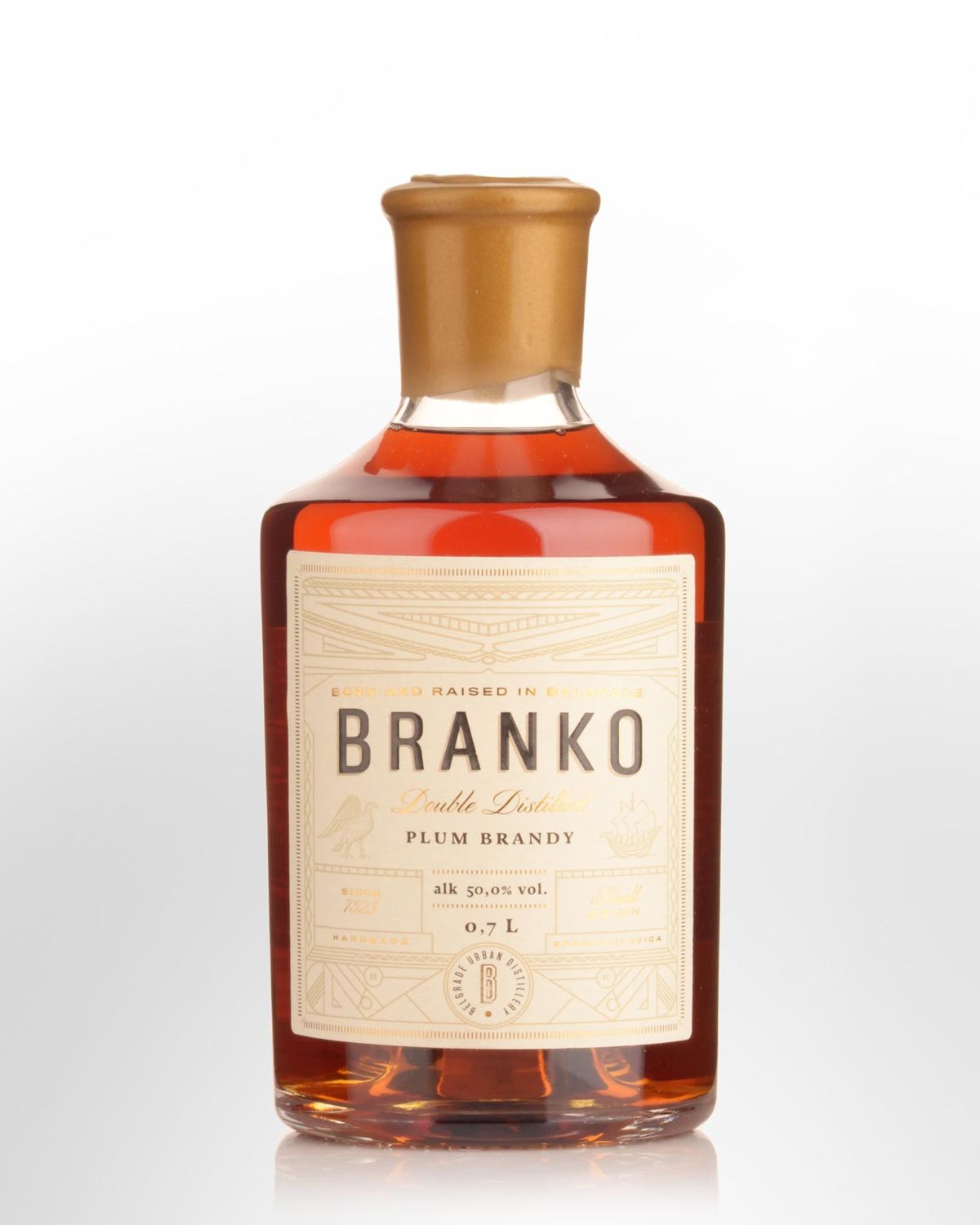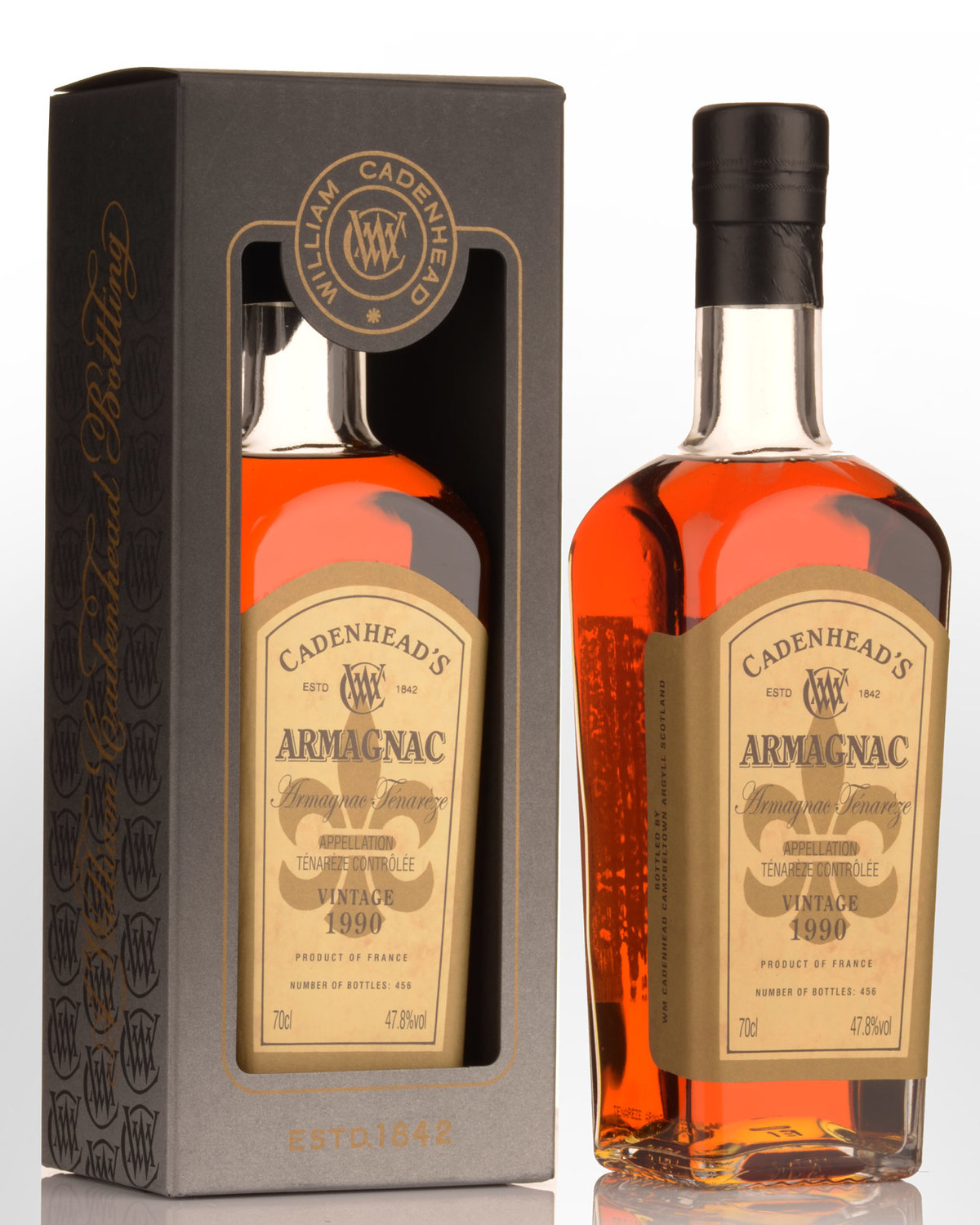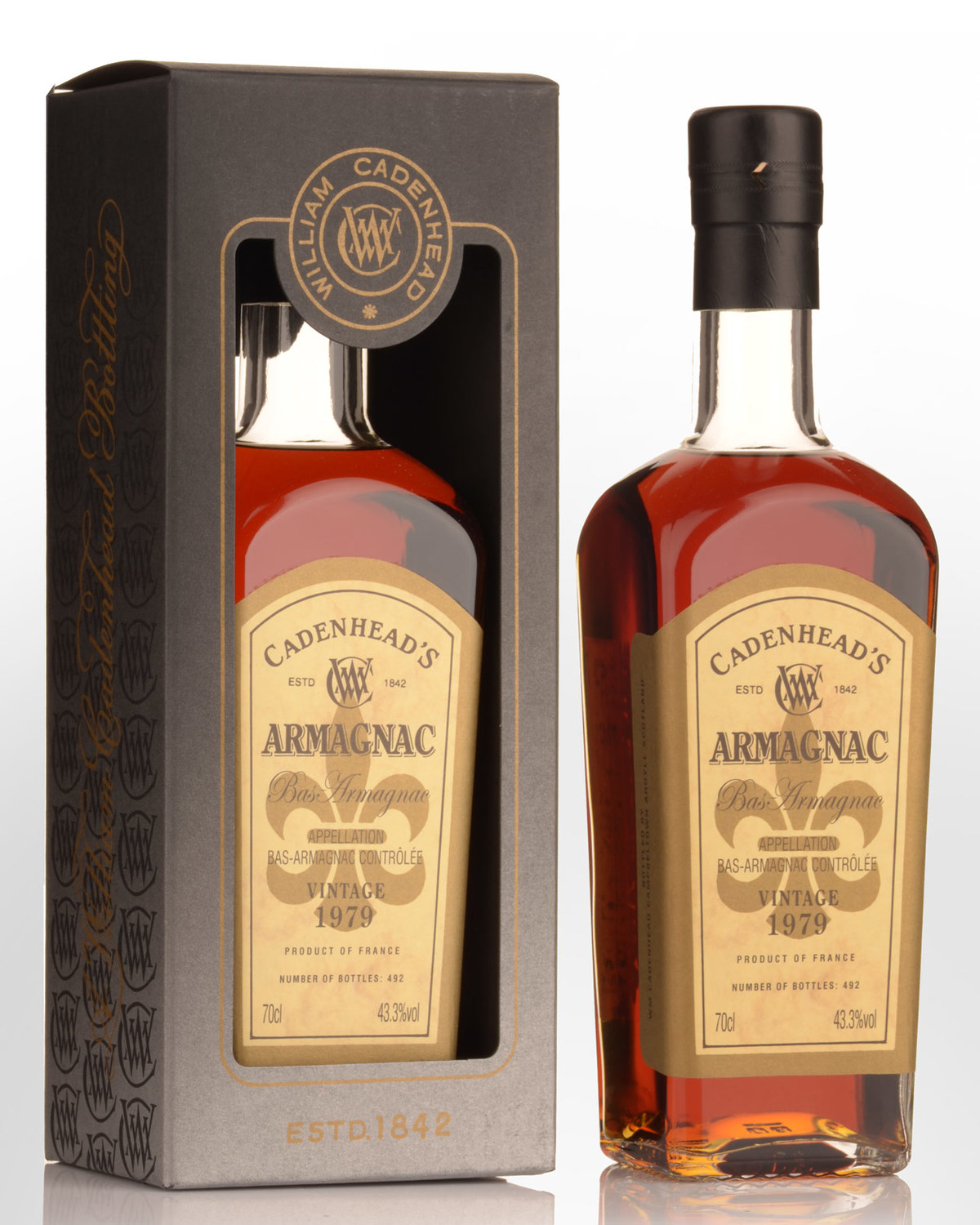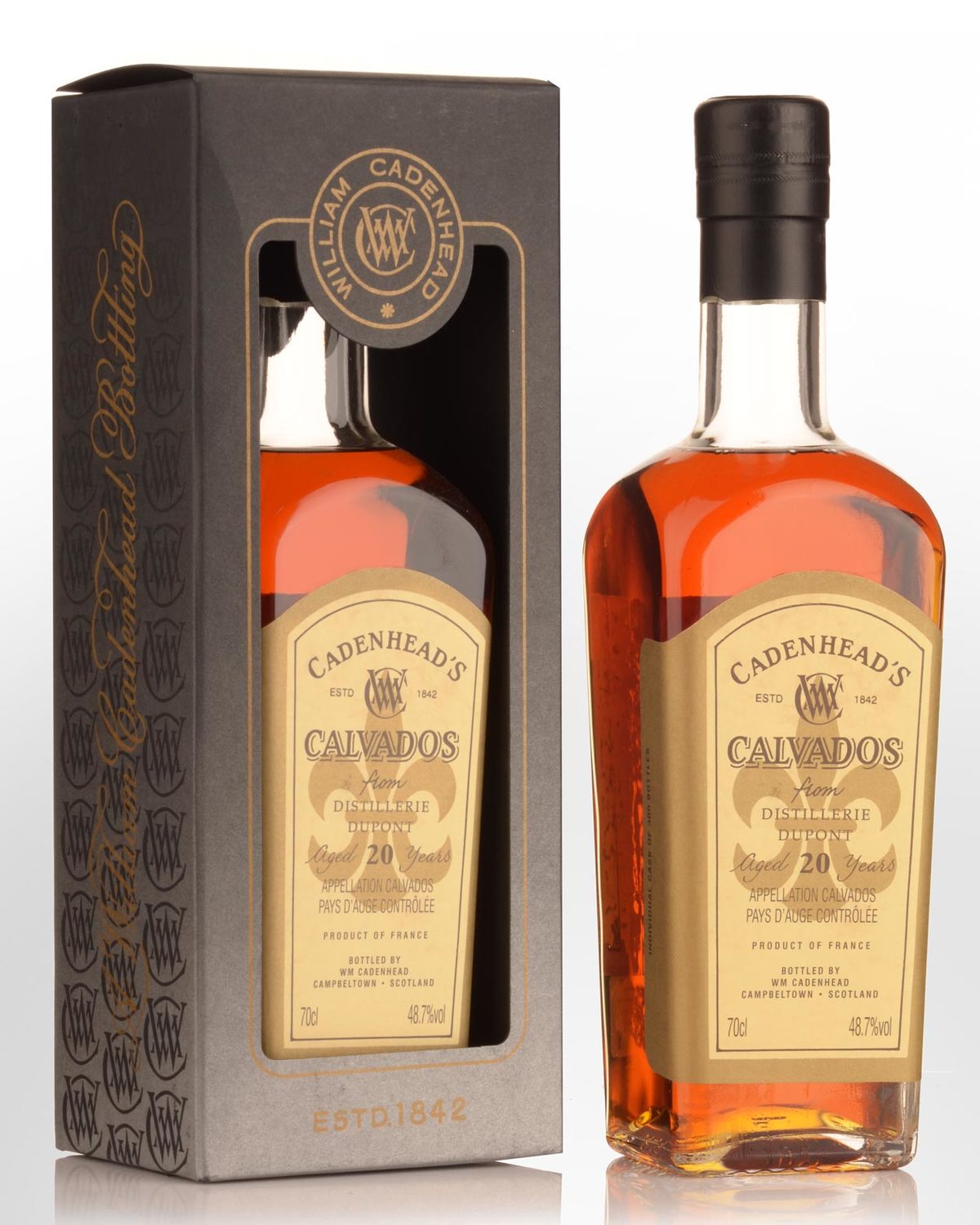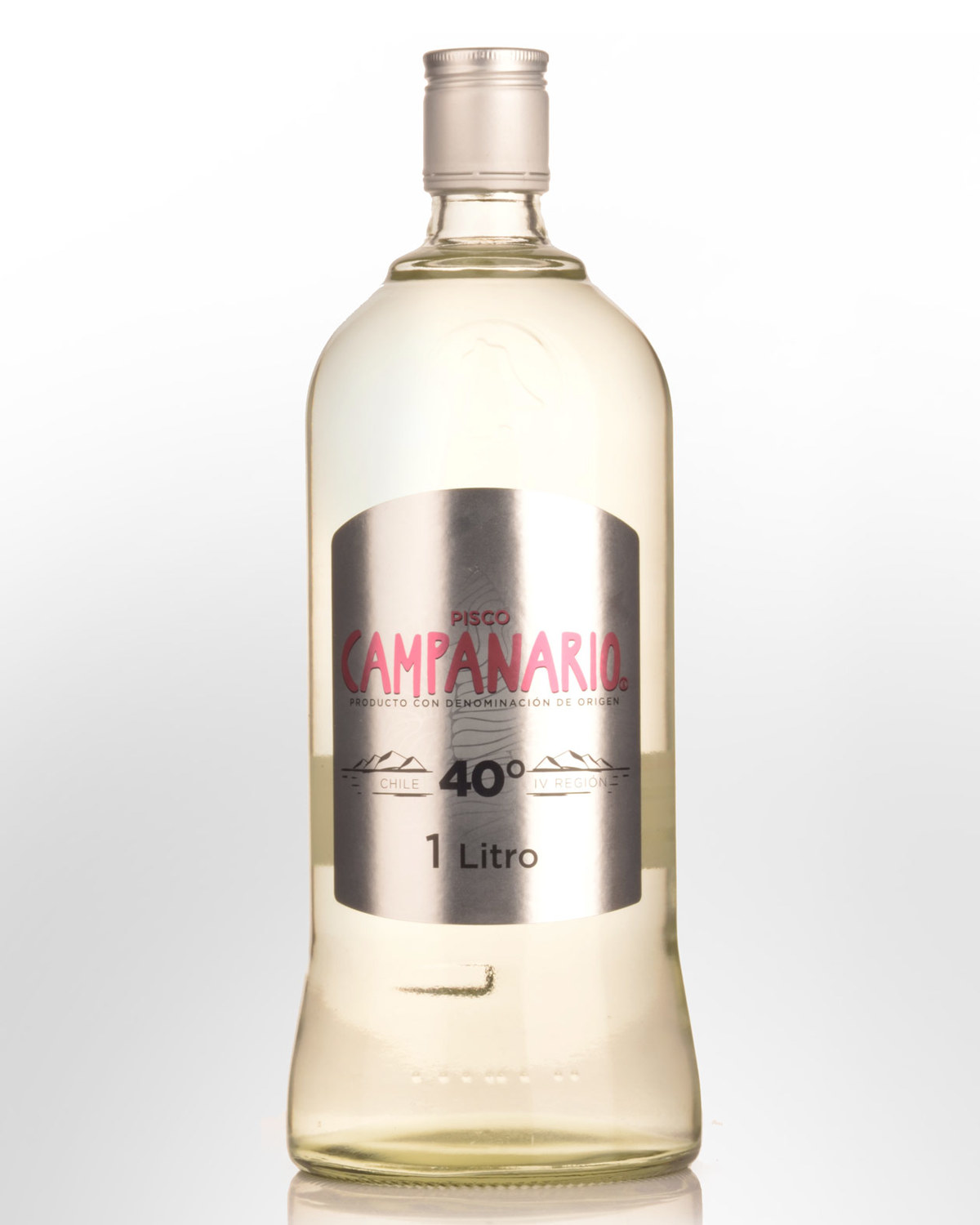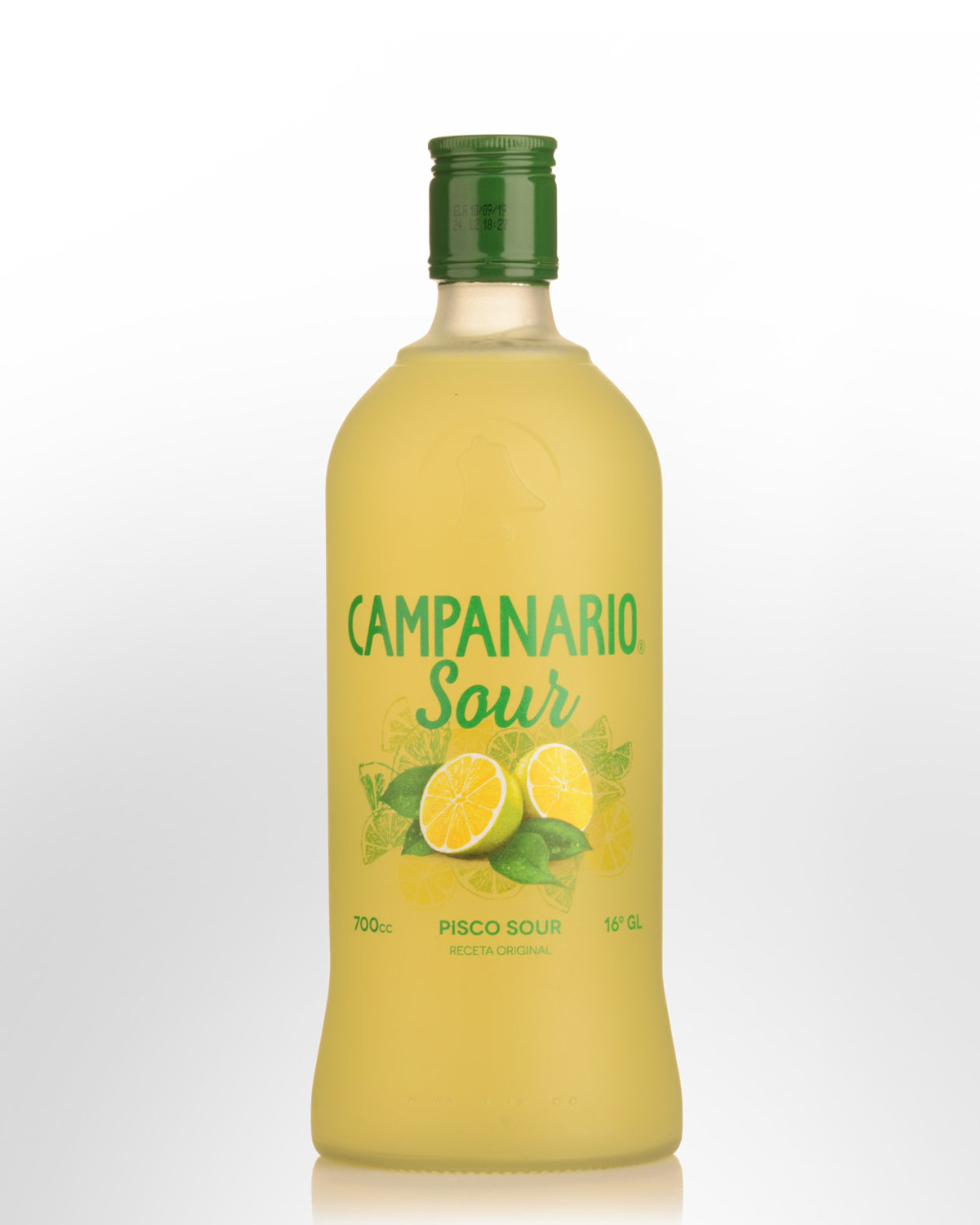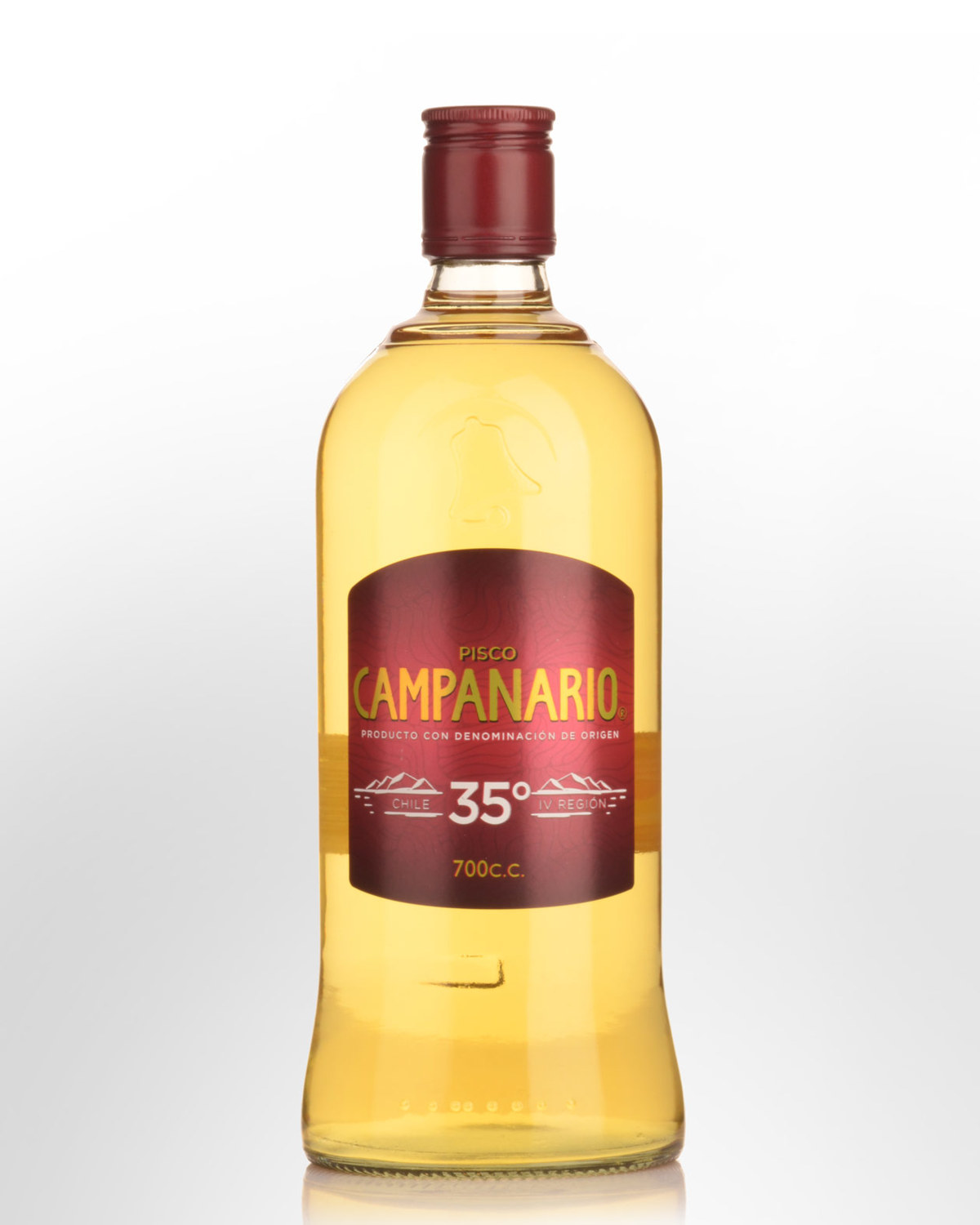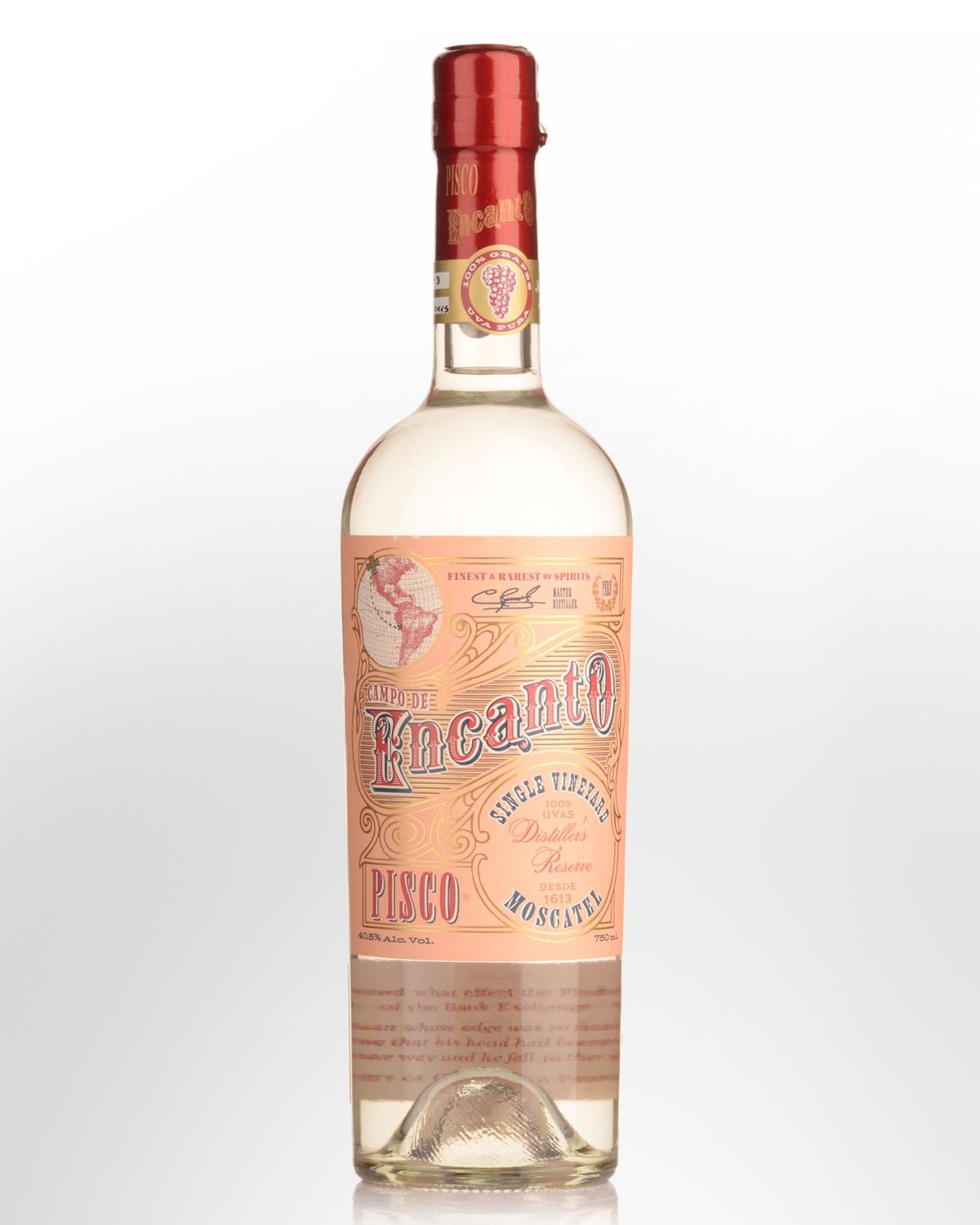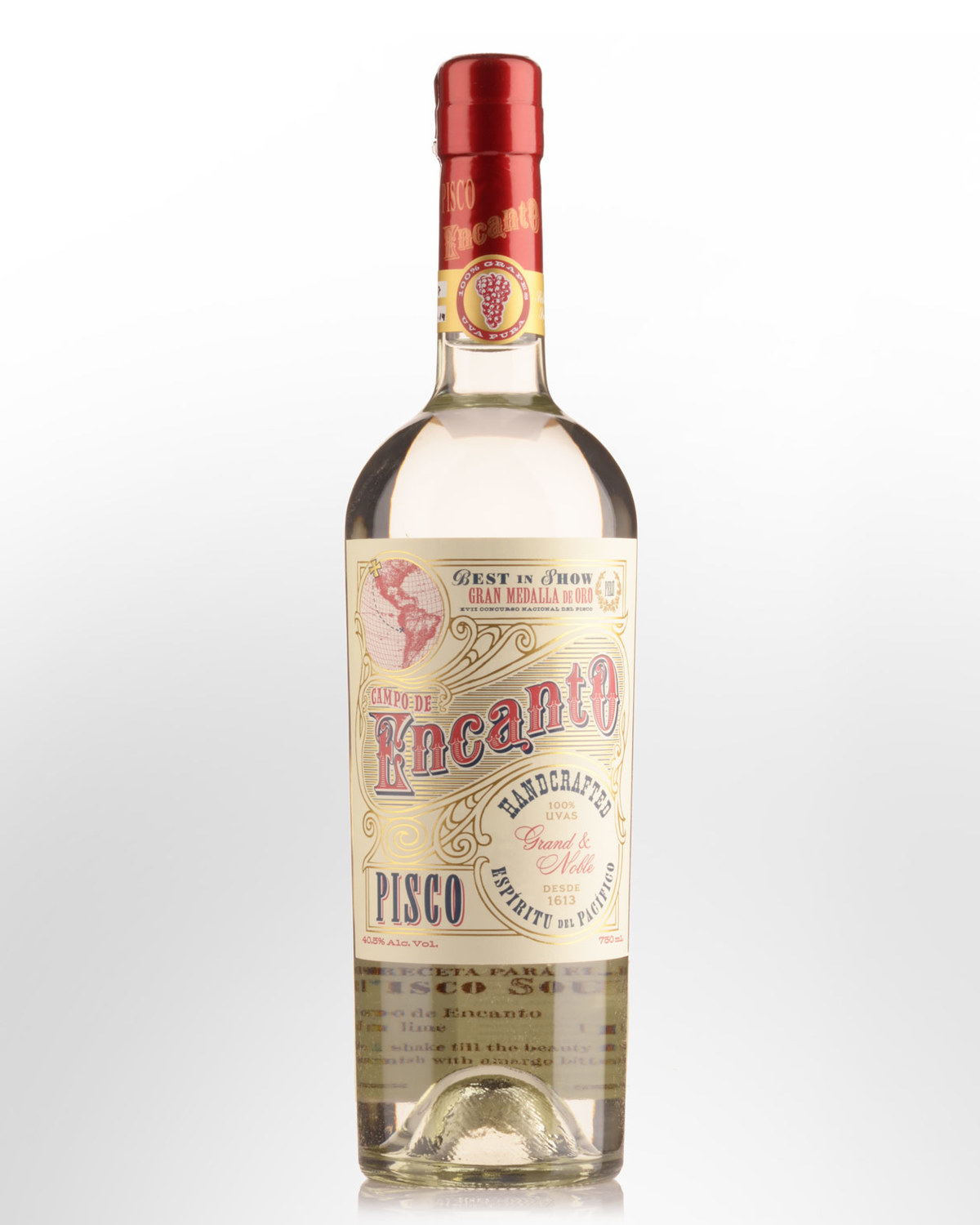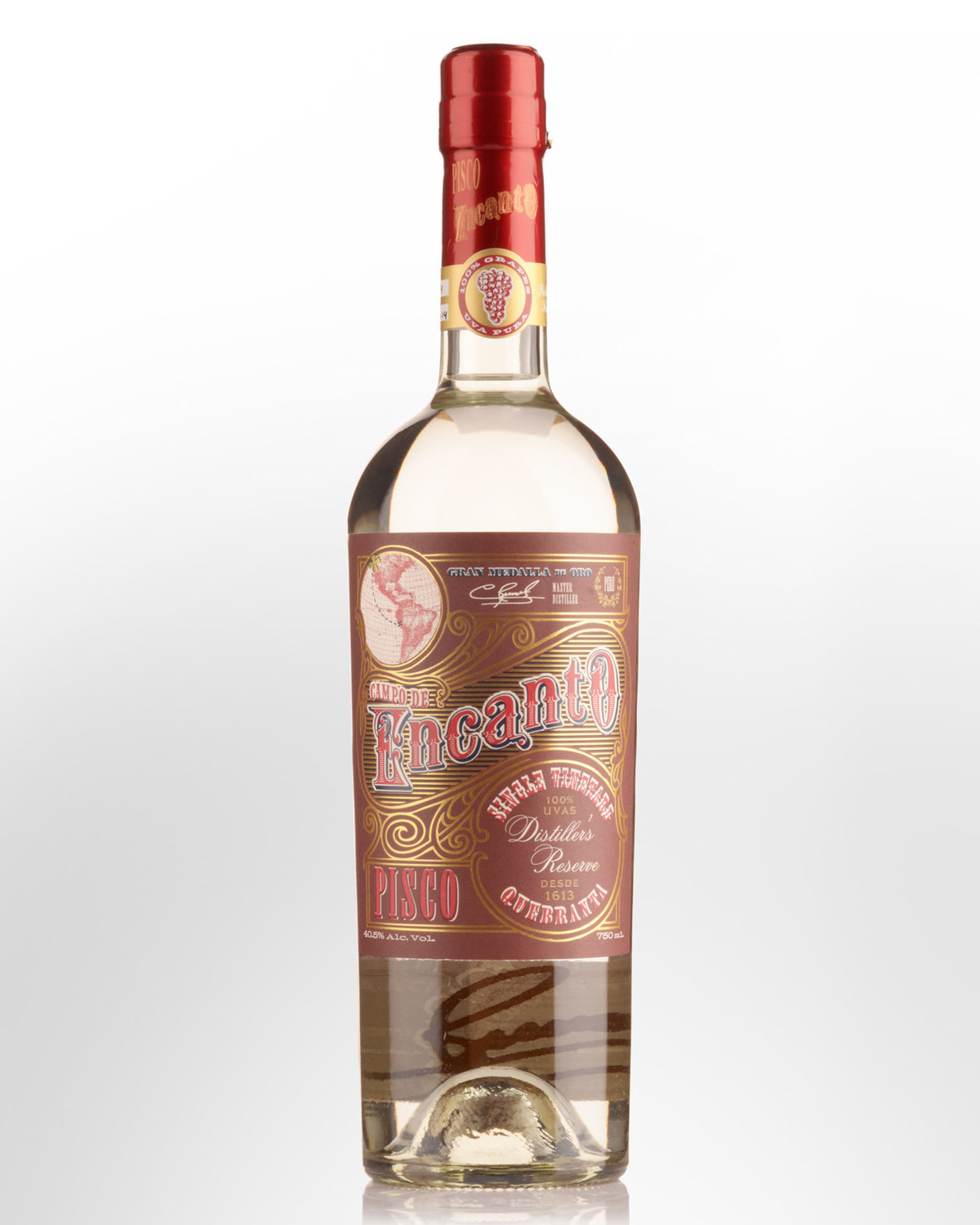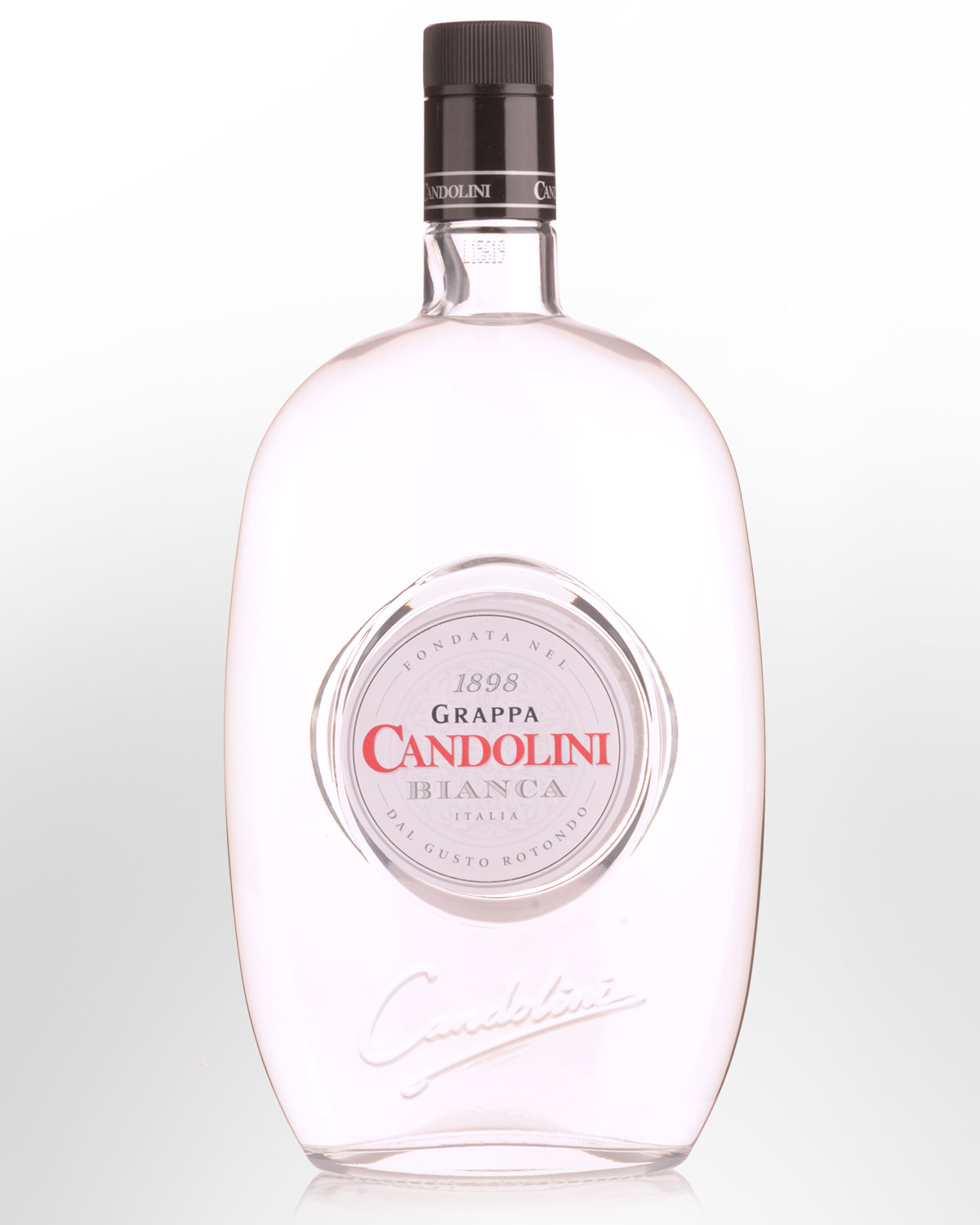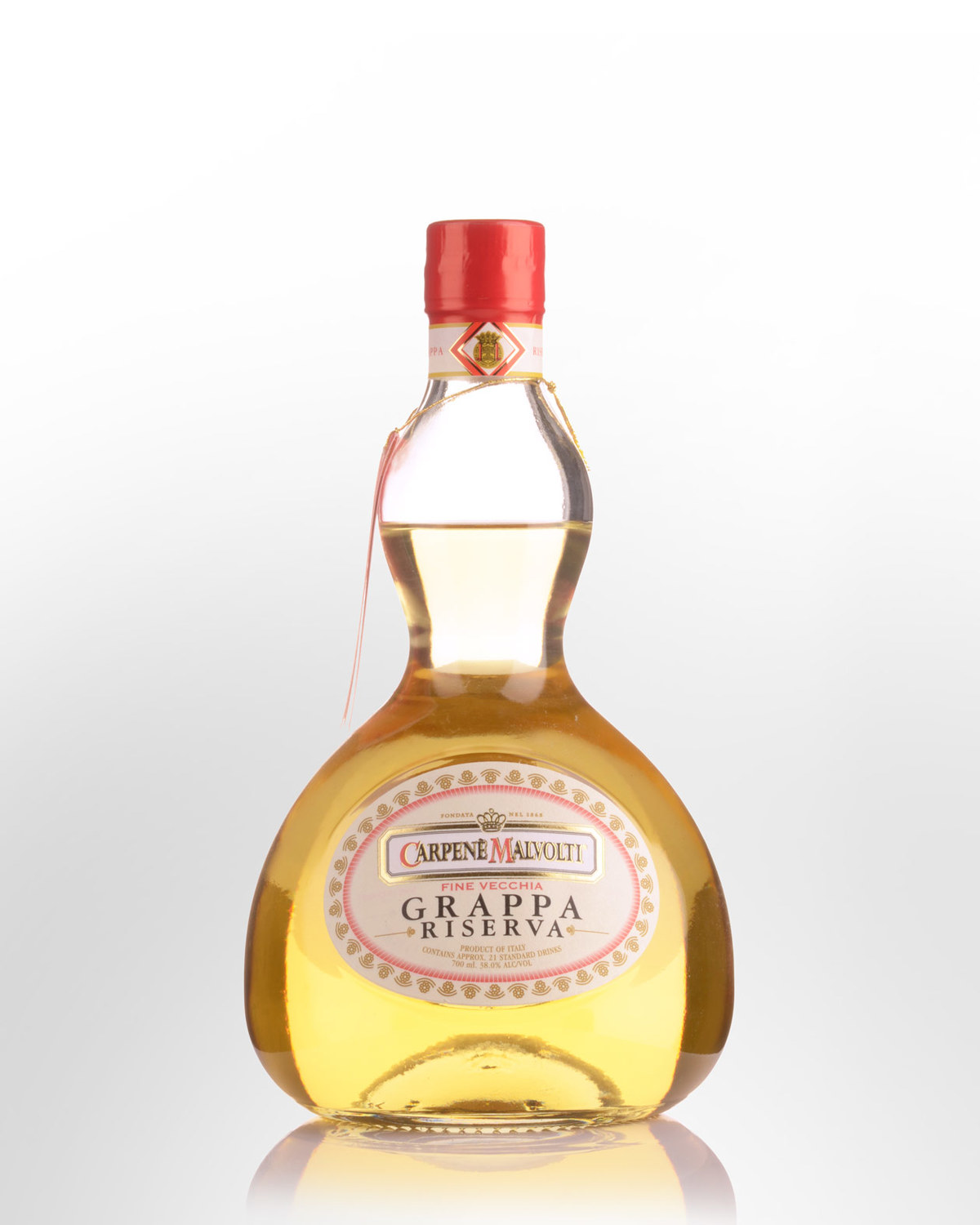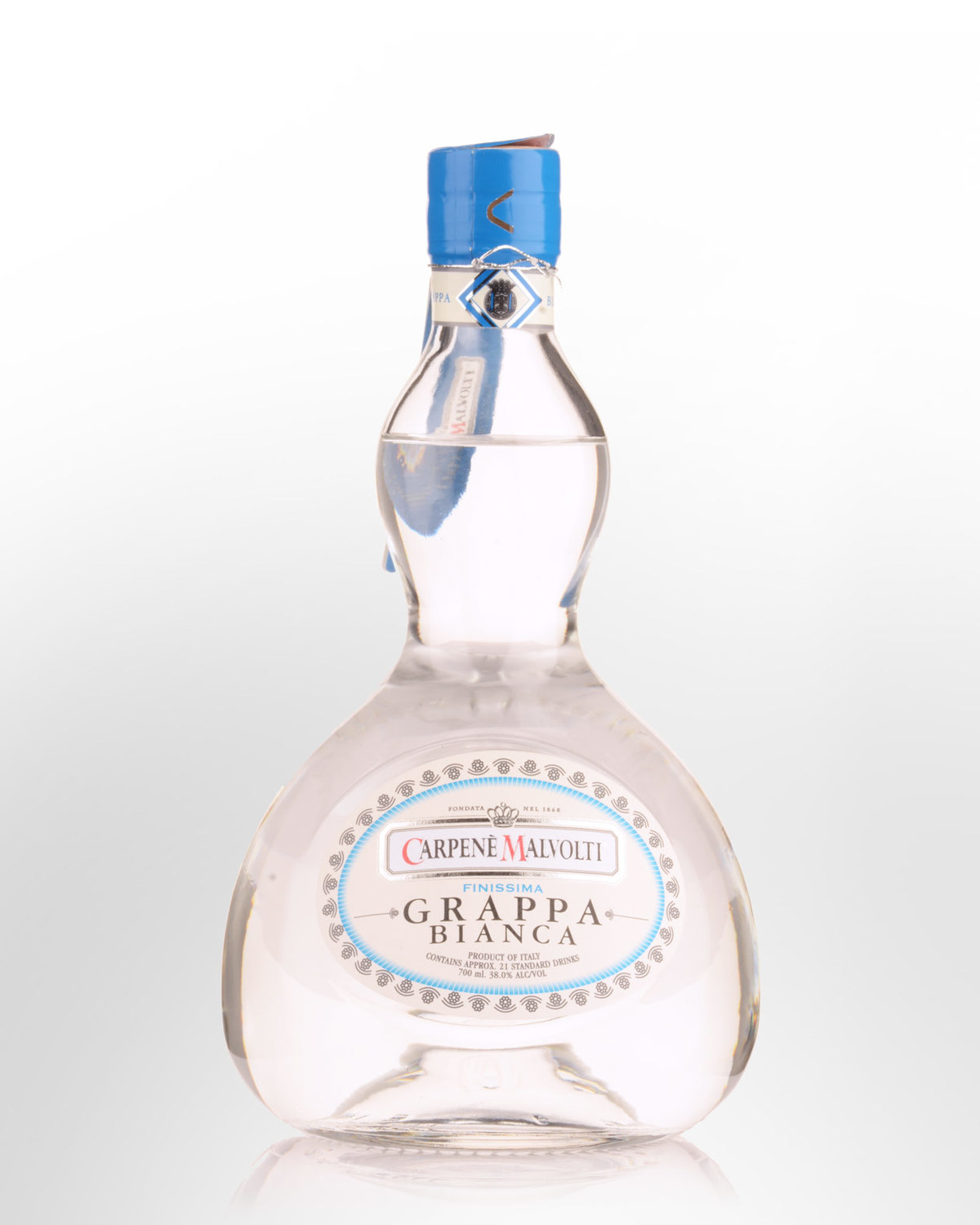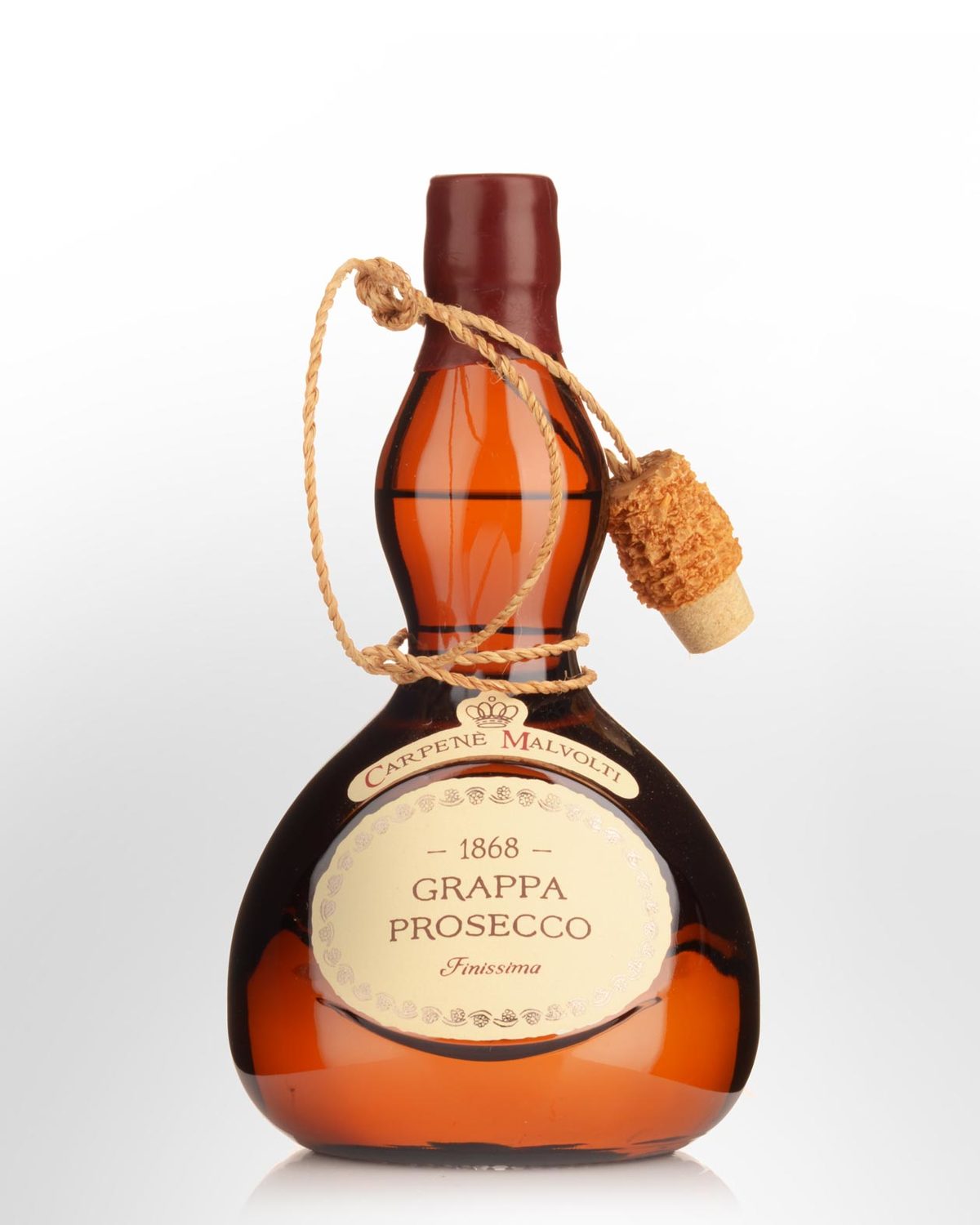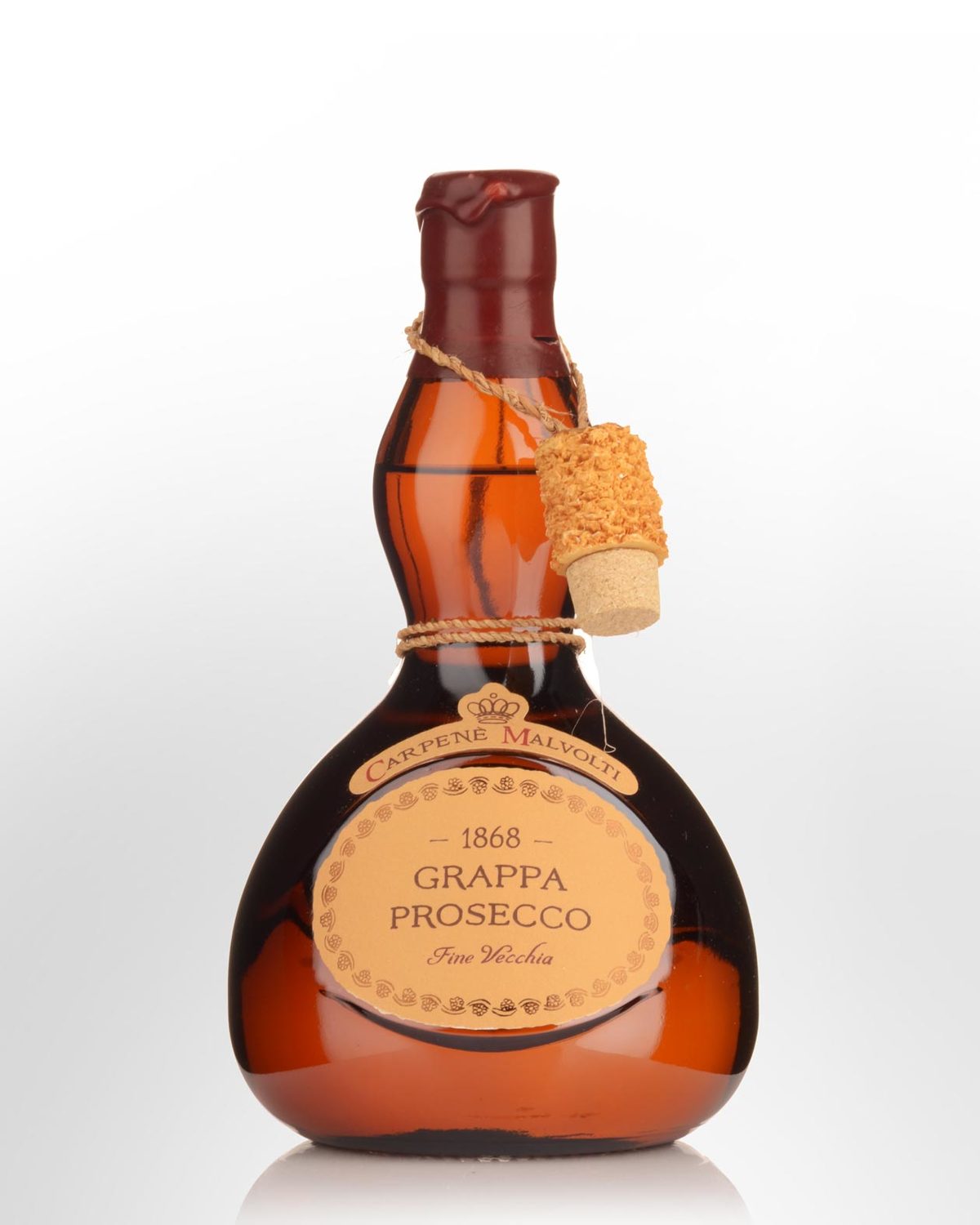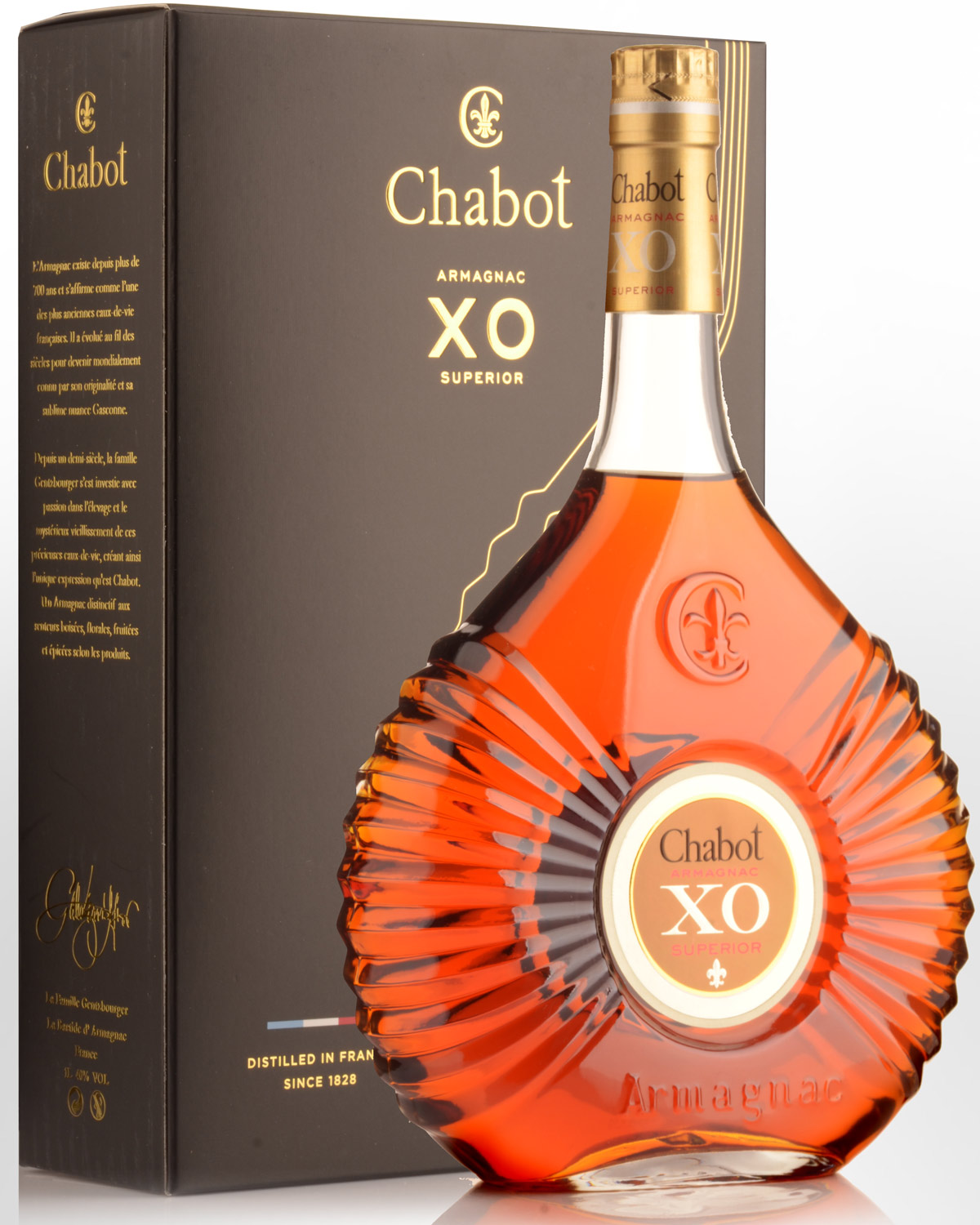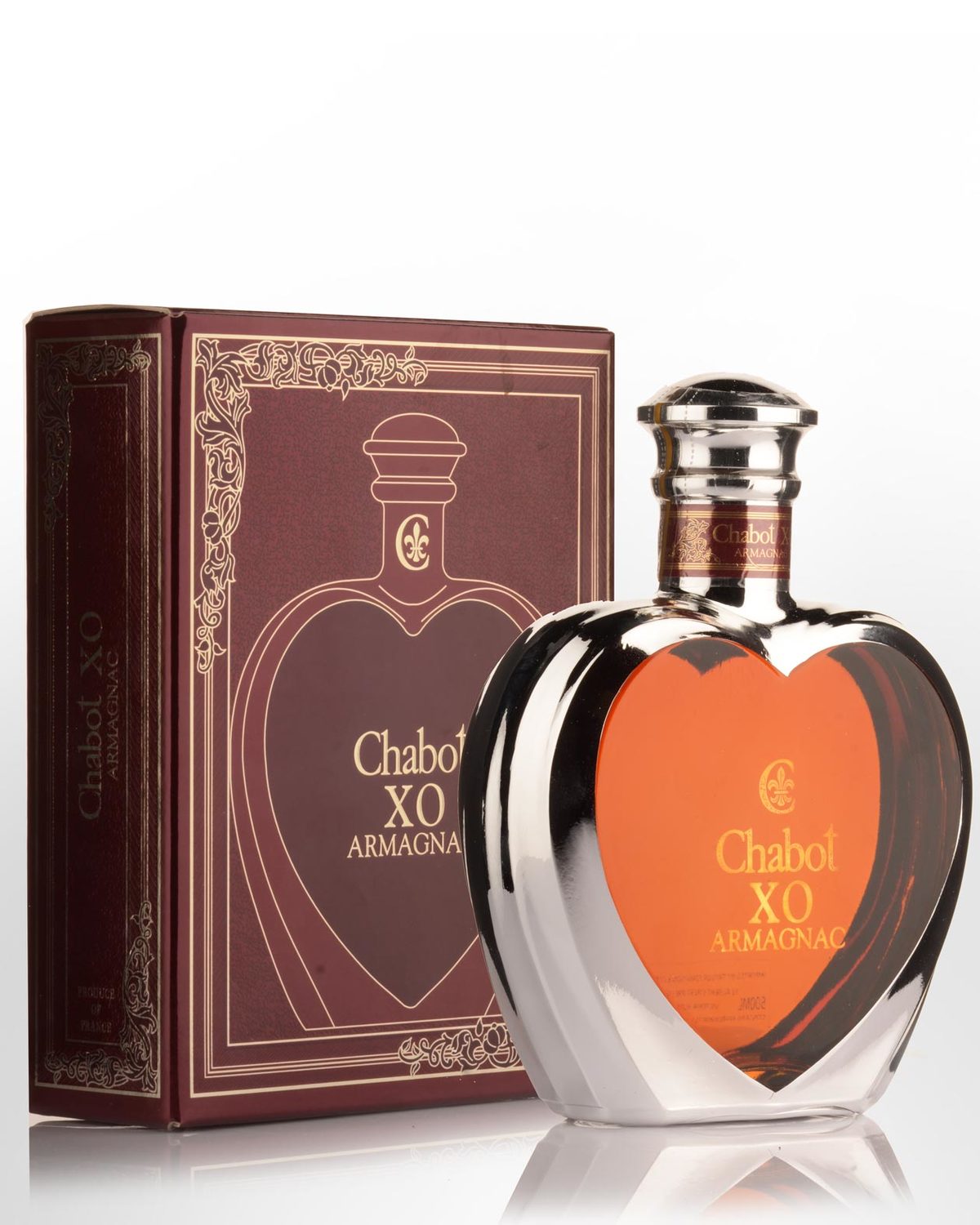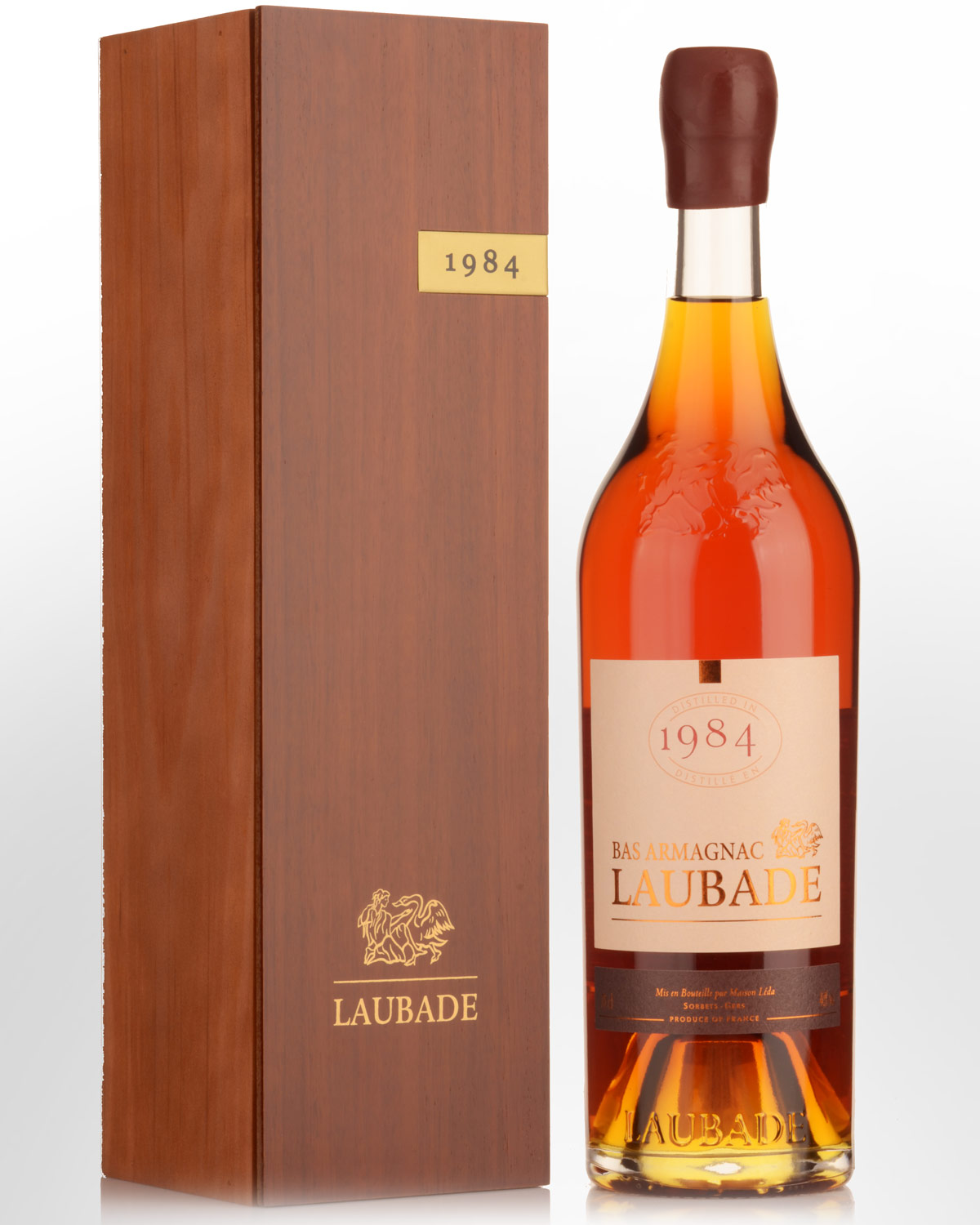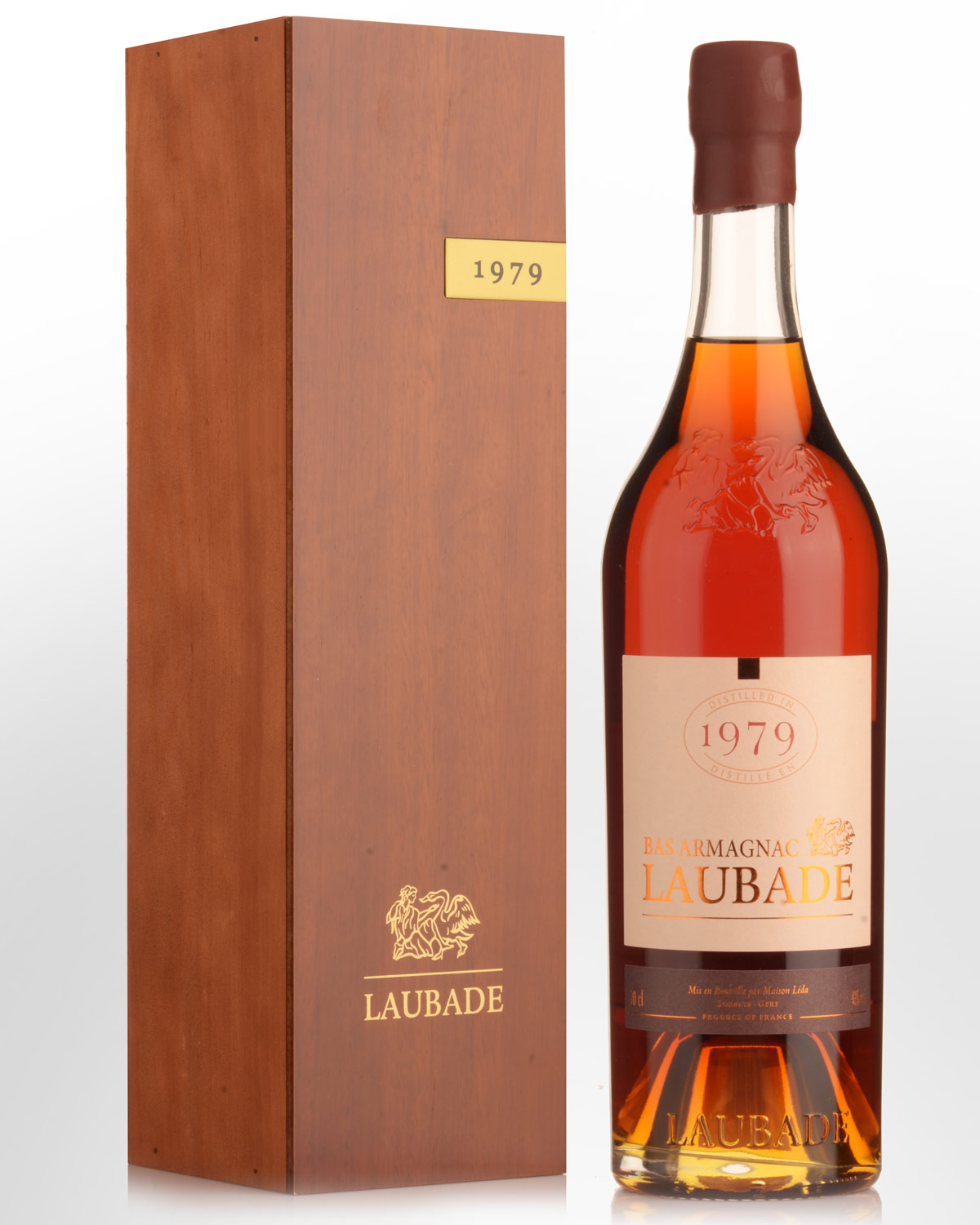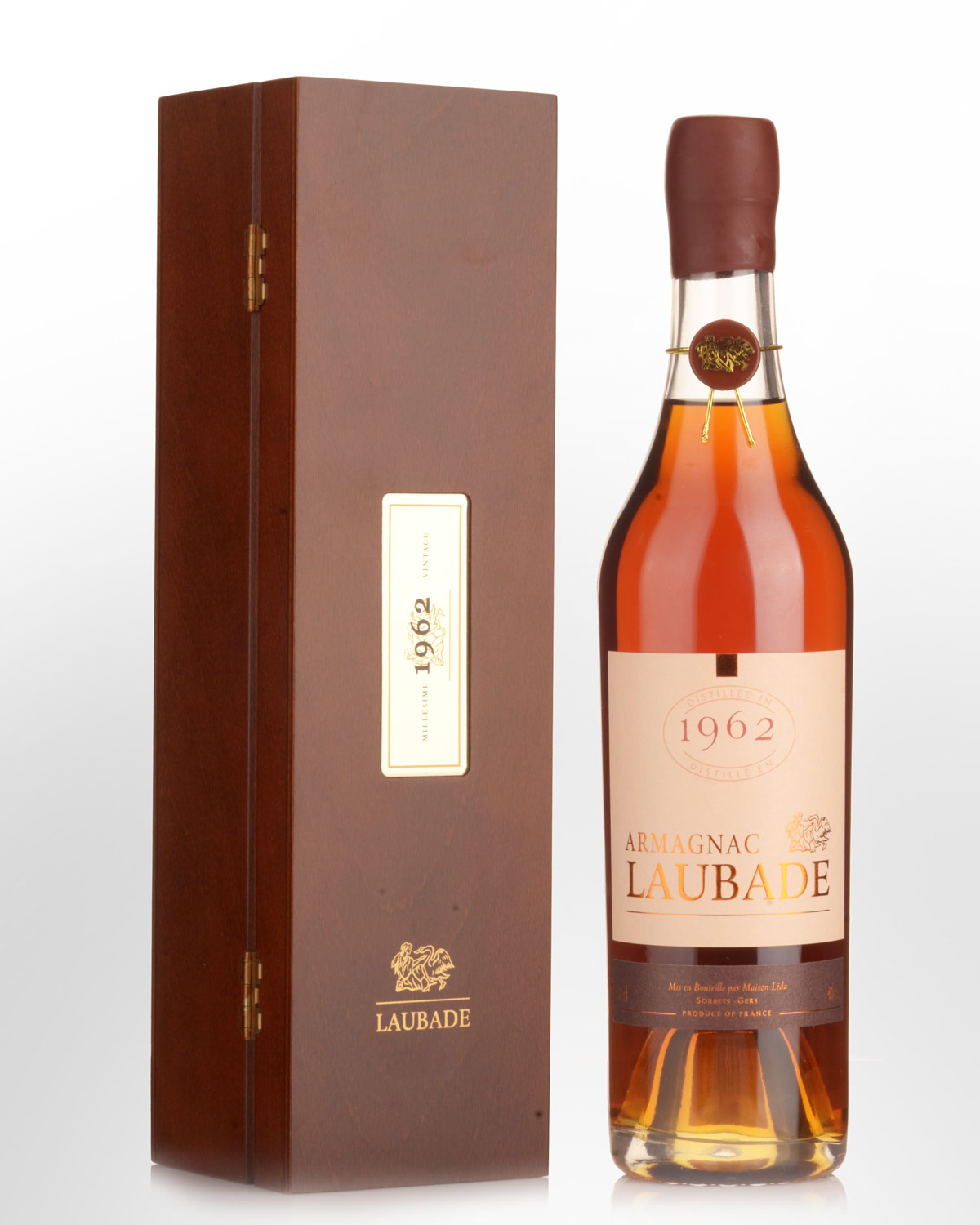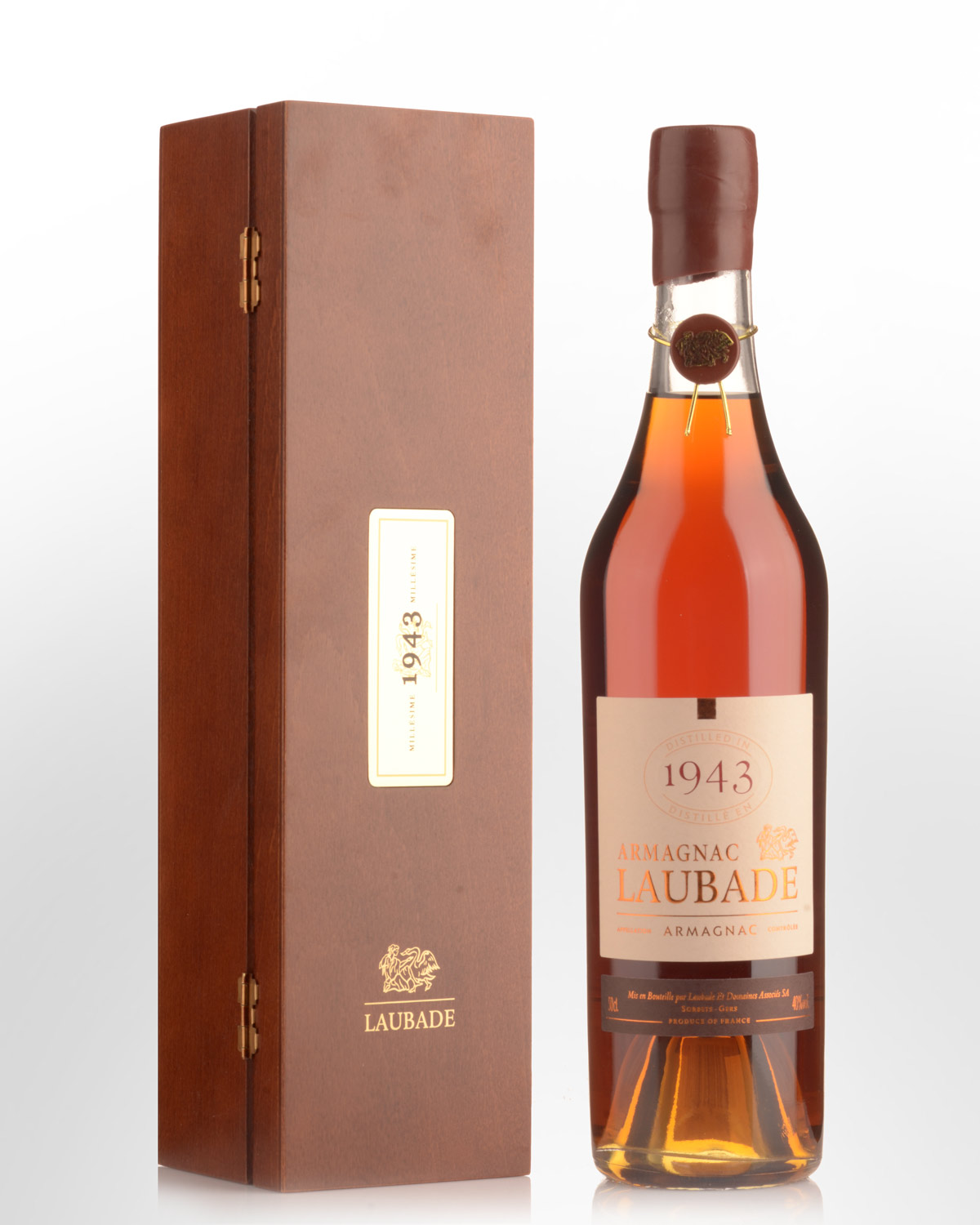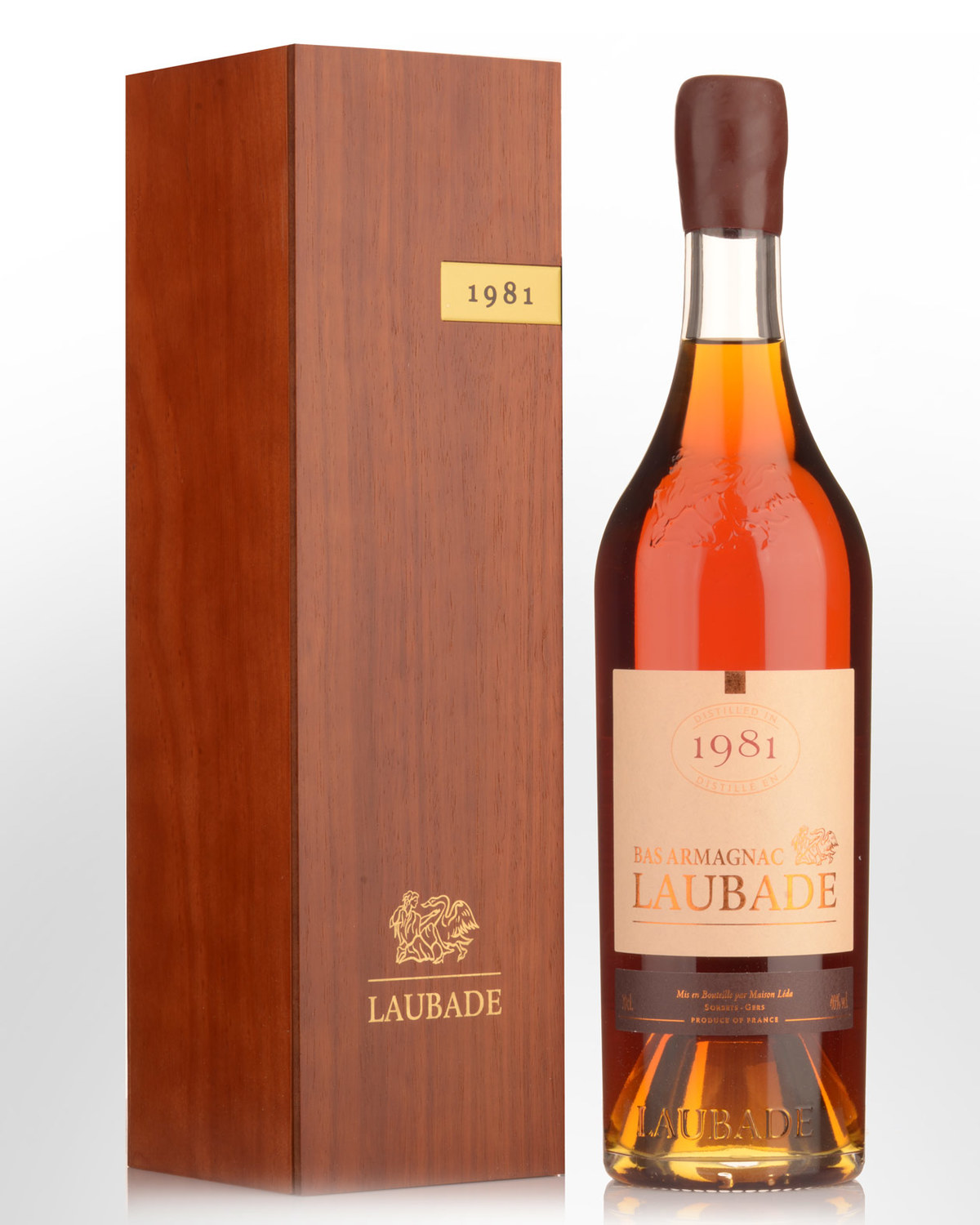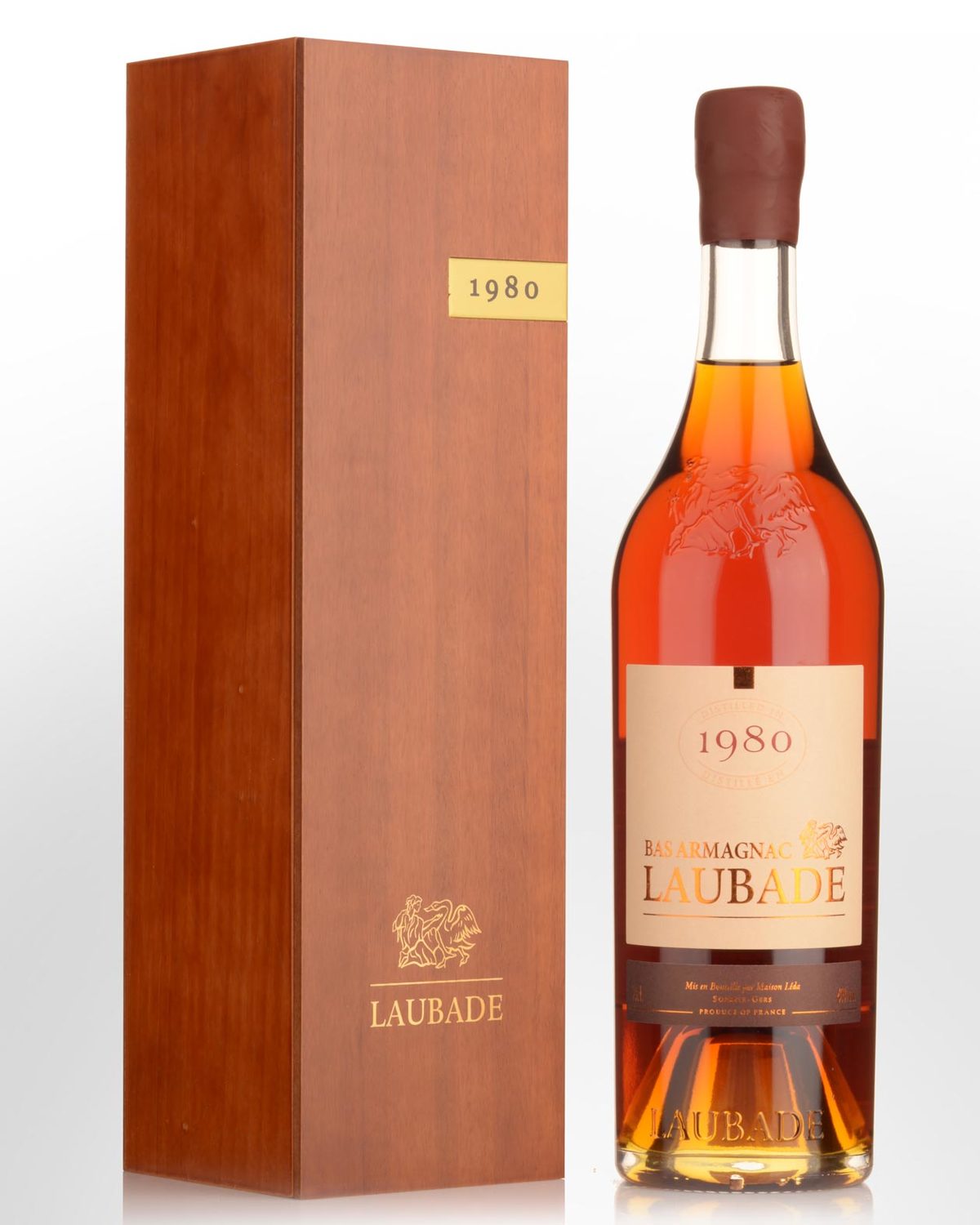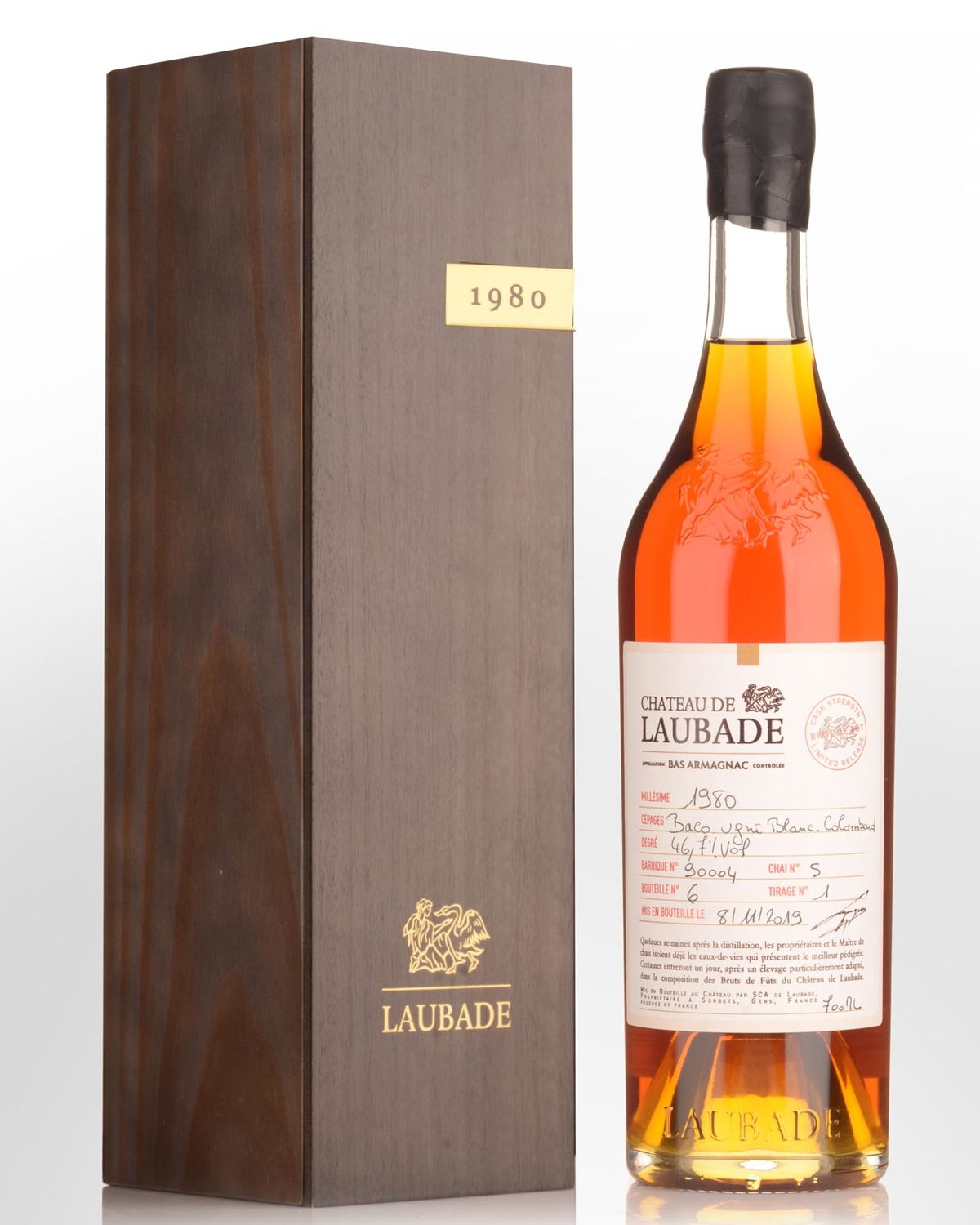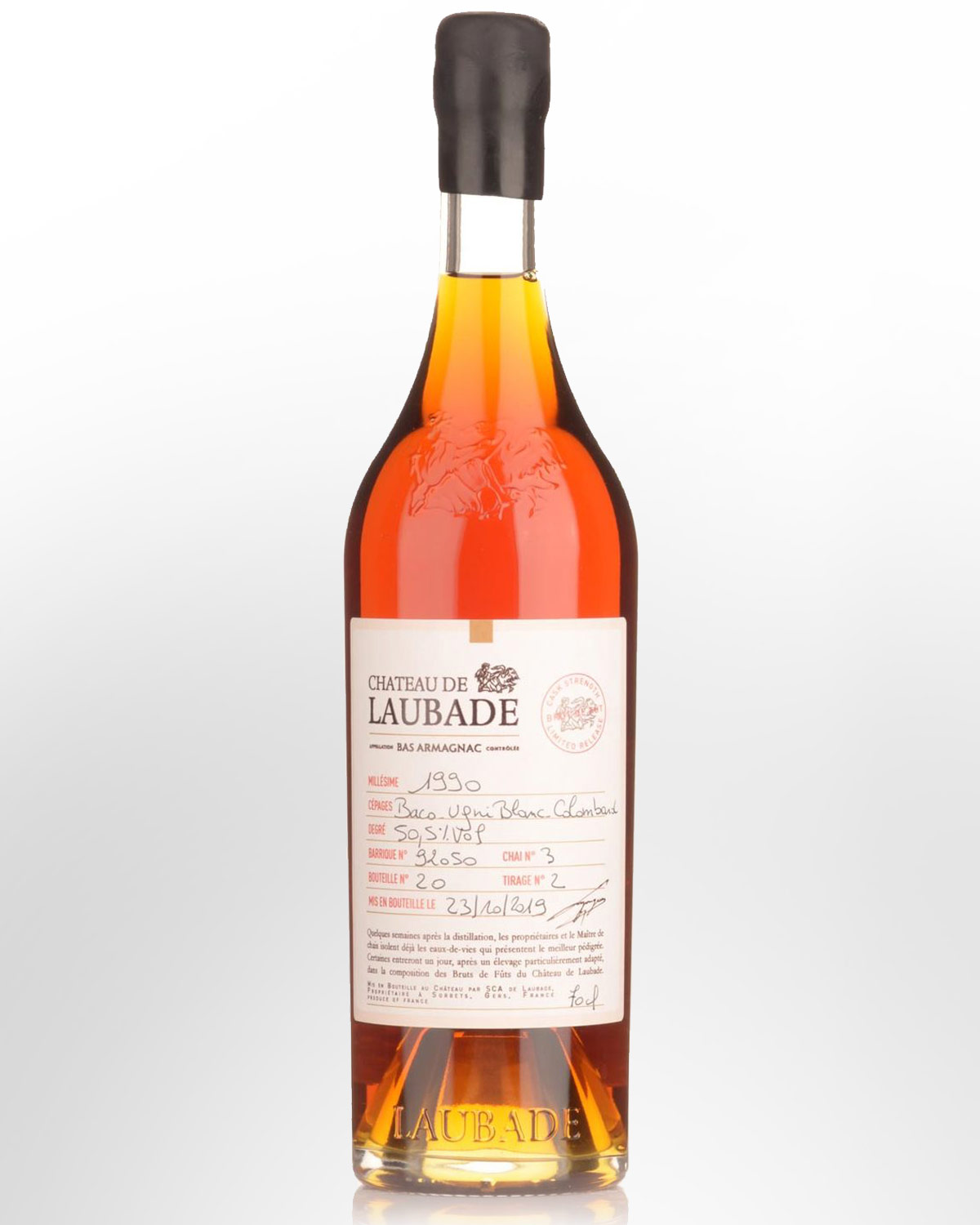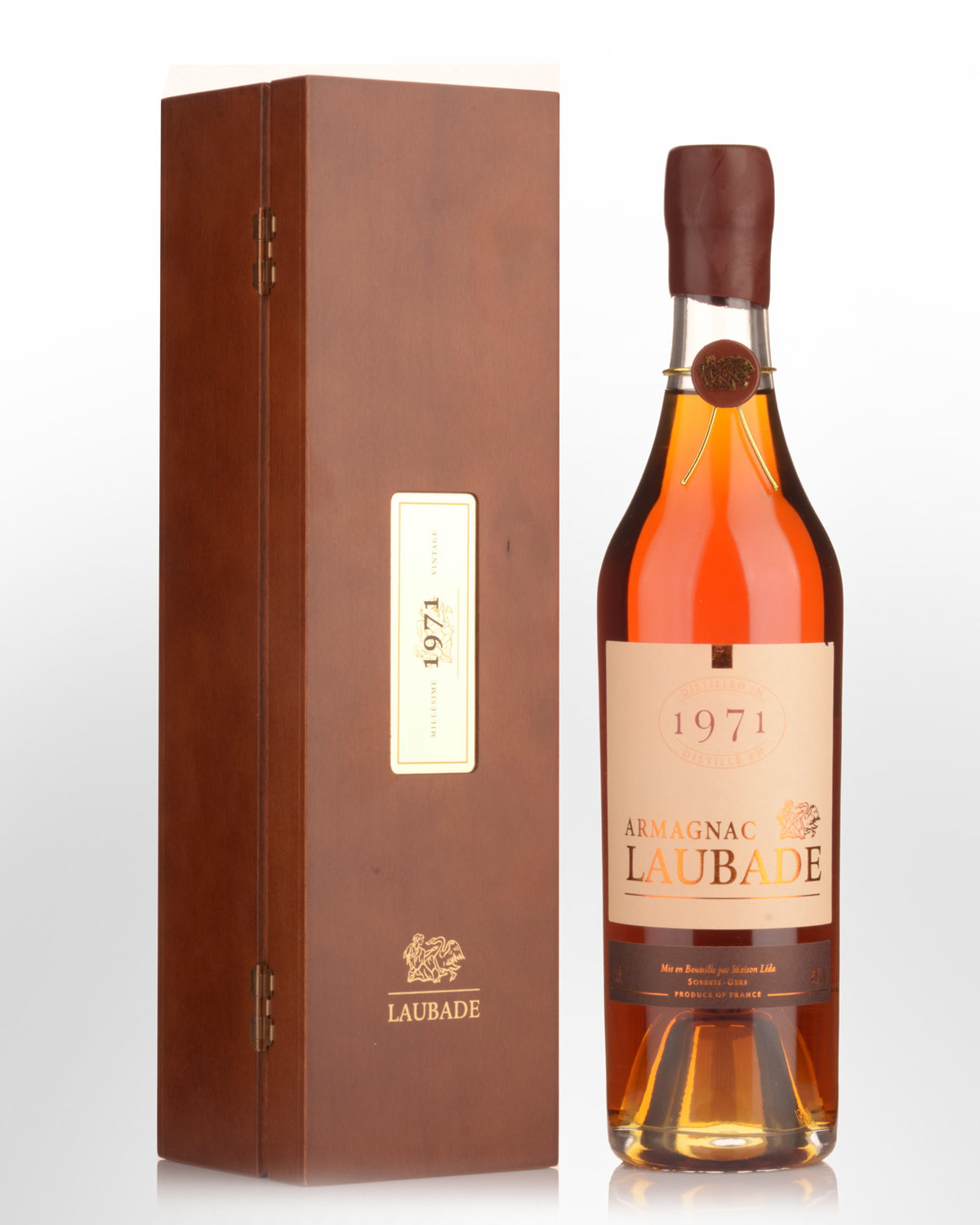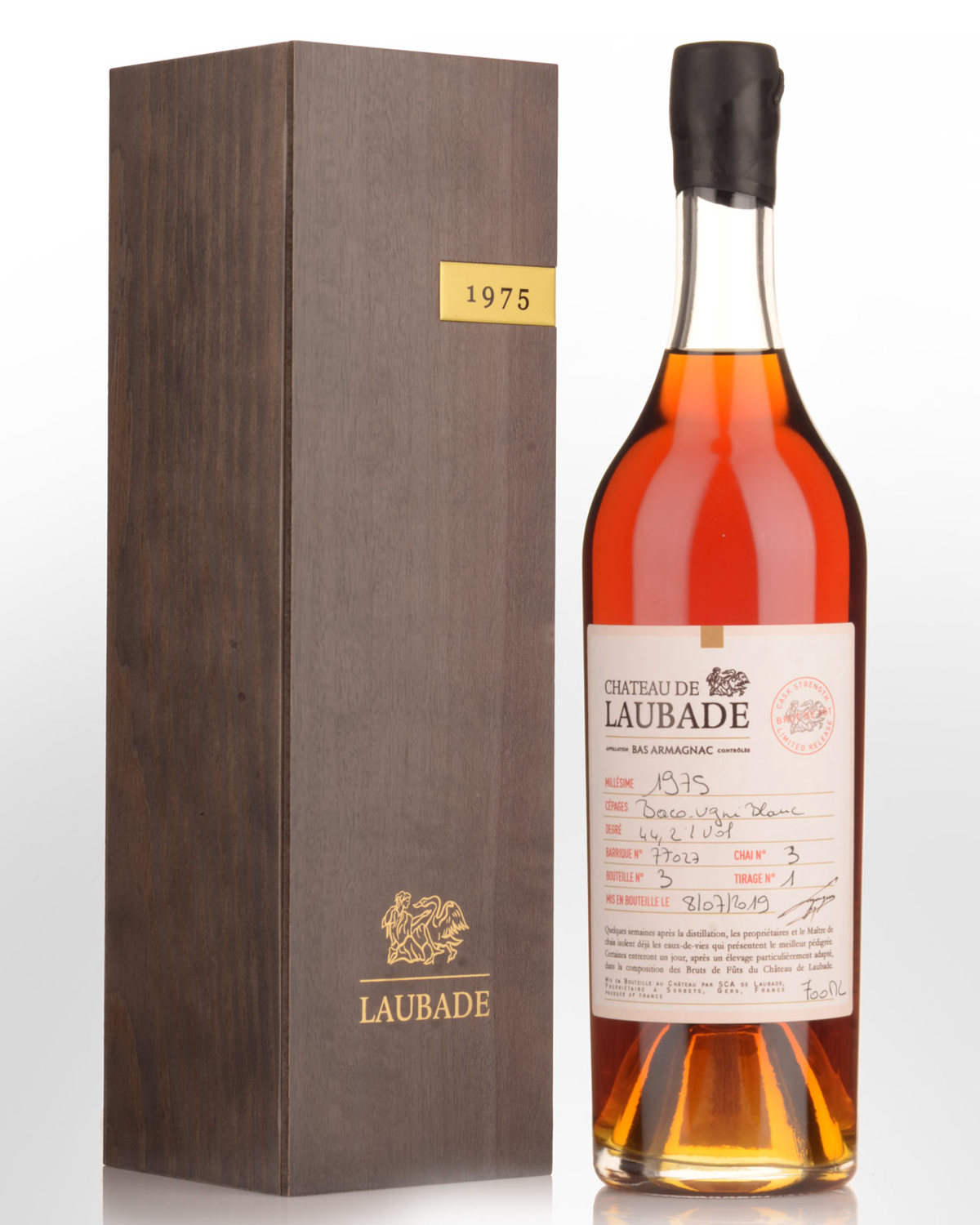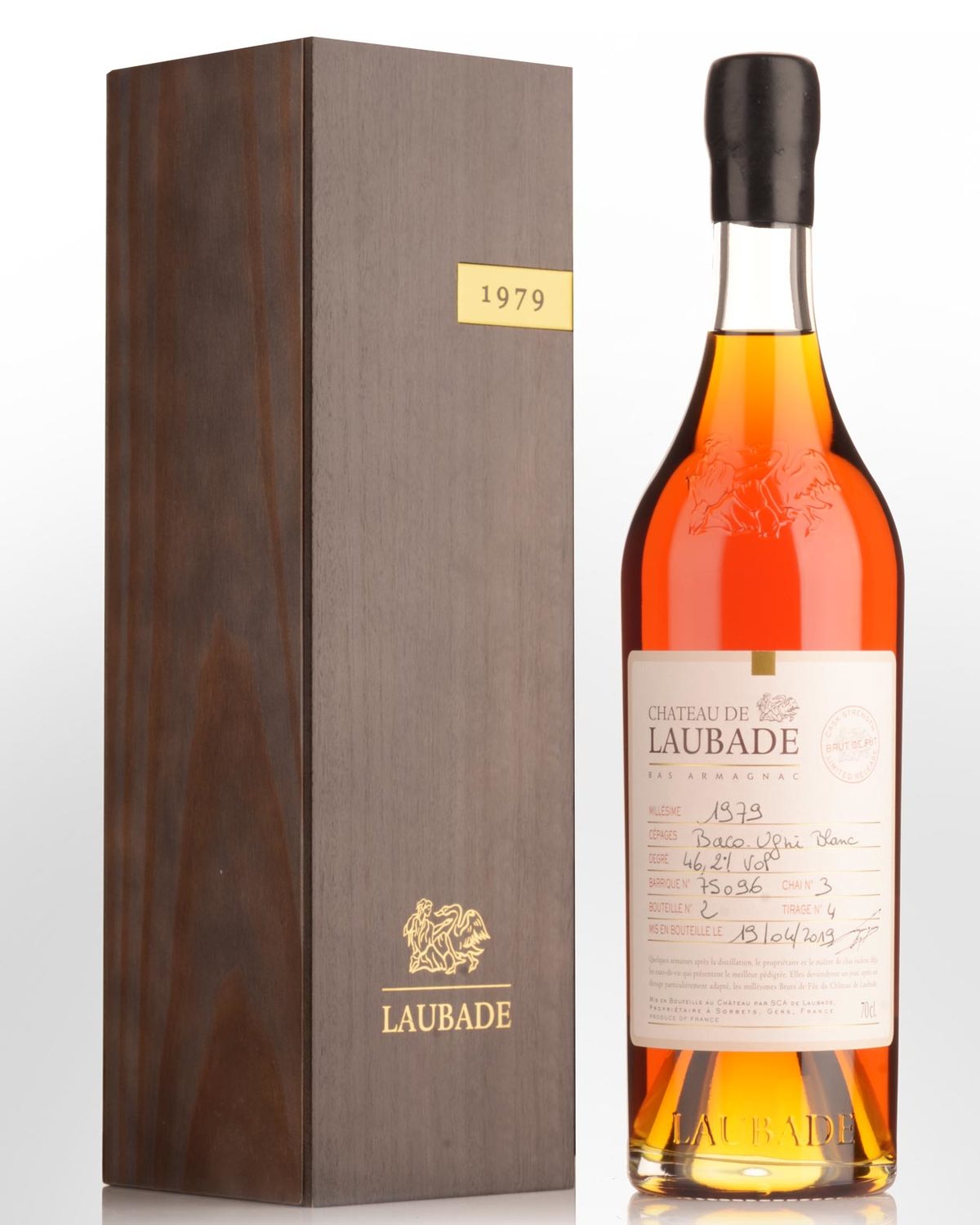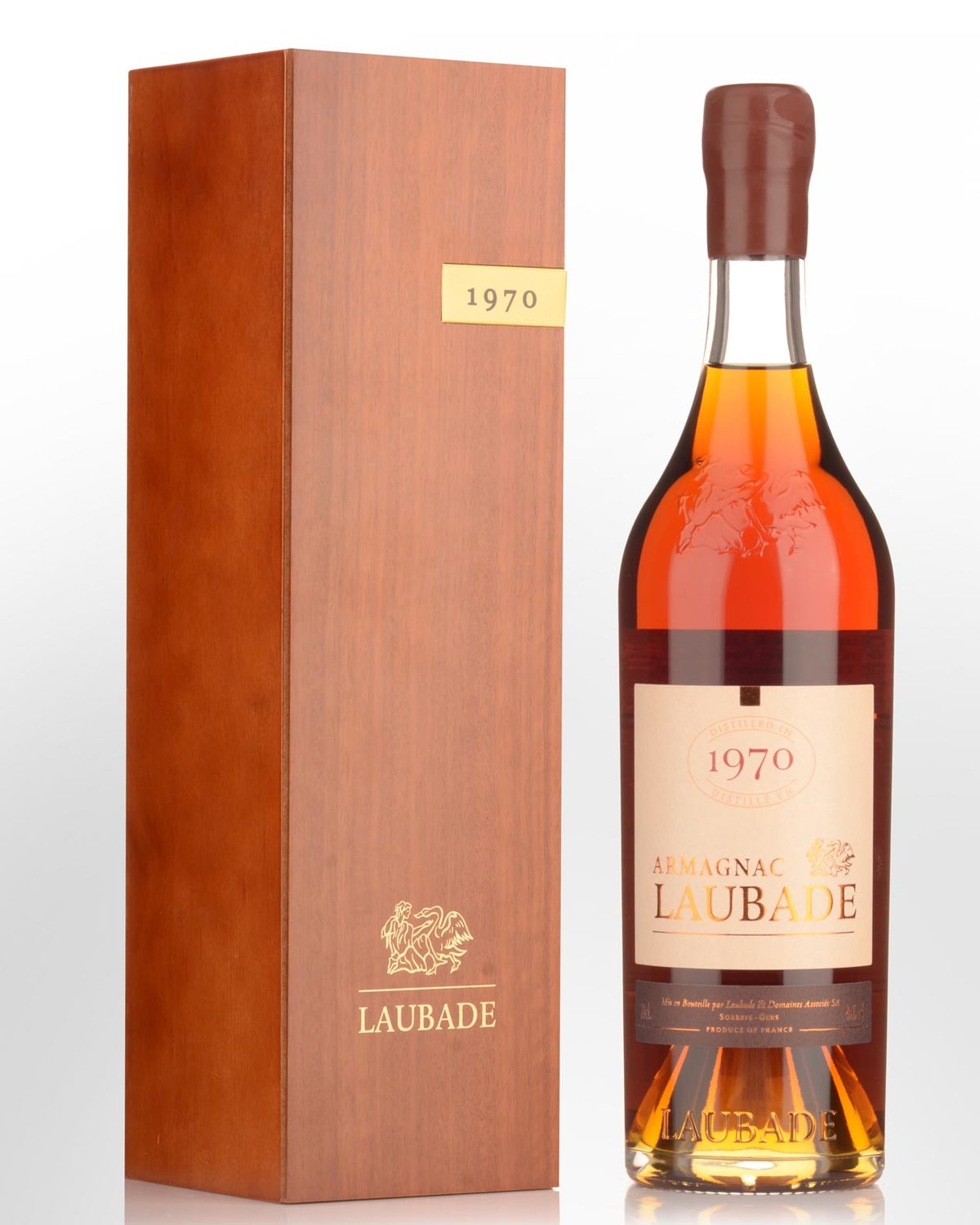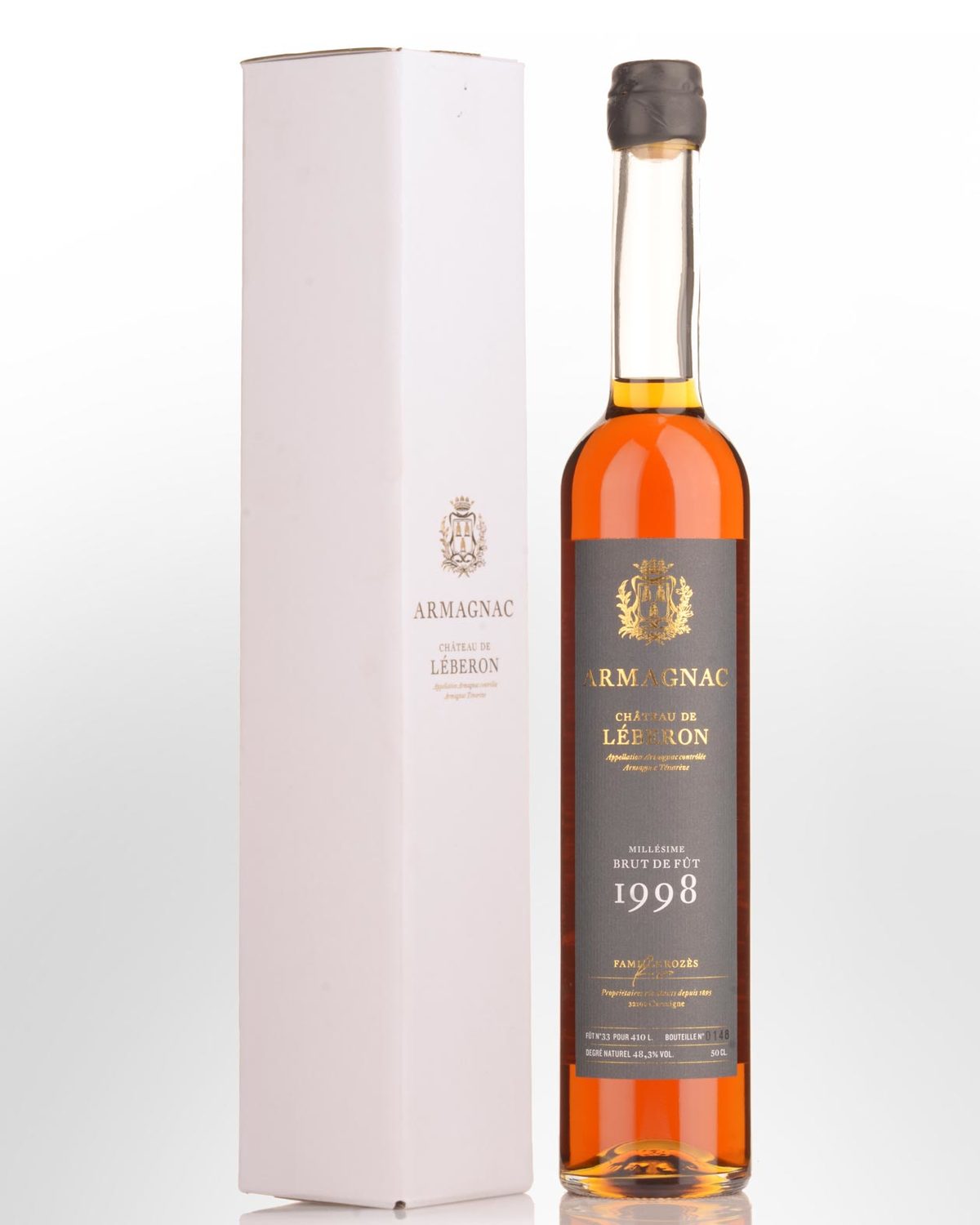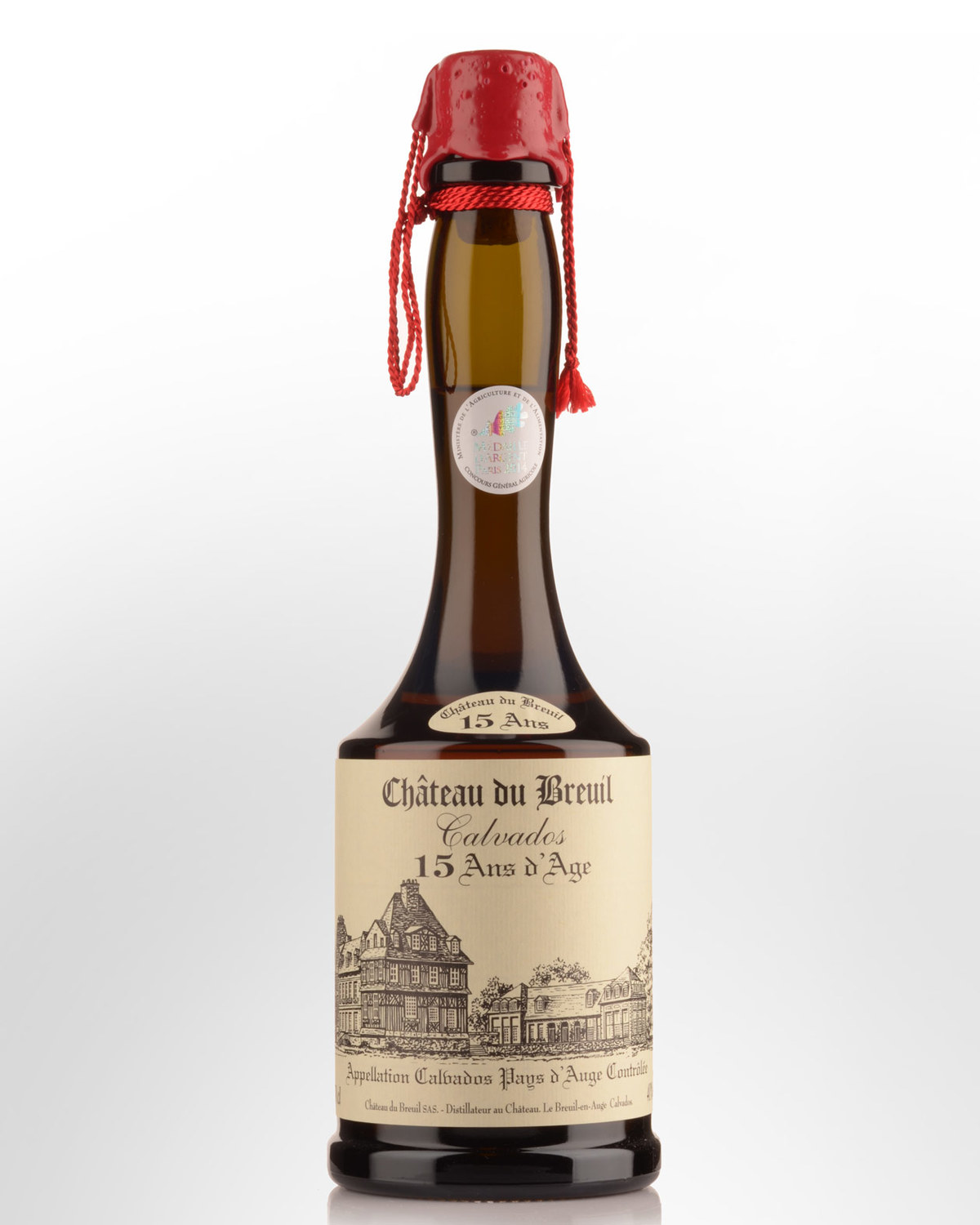Availability:
Other Brandy & Eau de Vie
- Alto del Carmen 35 Alto Especial Pisco (750ml)CHILE$61. 99Bottle$743.88 DozenABV: 35%Chilean Pisco is a distillate mainly of grapes from the Moscatel family, which are grown primarily in the semi-arid "little North" zone of Chile. Chile claims Pisco as its own, protecting its quality through strict adherence to regulations which permit production and processing only in the administrative regions of Coquimbo and Atacama.
Alto del Carmen is produced just outside of Vicuna in the beautiful Elqui Valley. This example is made from hand harvested muscat grapes, distilled in copper pot stills then rested in American oak barrels. Expect an easy-drinking, lightly fruity Pisco that's endlessly mixable. 35% Alc./Vol.
-
- Nick's Import
Ararat Ani 6 Year Old Brandy (700ml)ARMENIA$74. 99Bottle$899.88 DozenABV: 40%The Ararat brandies are sweeter-styled falling somewhere between ripe cognac and New World styles (think Australian brandy).
In the six year old, expect bright aromas of sunny citrus, dried figs and sweet almonds as well as overtones of orange and vanilla. “Ani” refers to the capital of the Bagratuni Kingdom, first mentioned by Armenian chroniclers in the 5th century as the most important hub of its time for the various caravans journeying along the Silk Road. 40% Alc./Vol. At the Yalta conference at the end of the Second World War, Winston Churchill was so impressed with an Armenian brandy given to him by Stalin, that he asked for 400 bottles of it to be sent to him each year. Churchill was not the only one to enthuse about this jewel of the Caucasus. Agatha Christie and Frank Sinatra were also fans. It impressed the French so much during a blind tasting, they bestowed it with the Gran-prix award at the International Exhibition in Paris in 1900, and even permitted the company to call the product “Cognac” instead of brandy - a designation that would otherwise be jealously guarded. The accolade was all the more significant when one considers that Brandy production in Armenia covers a fraction of Cognac's history.
It began in 1887, when the Yerevan Brandy Company (YBC) was founded by a merchant, Nerses Tairyan, with the help of his cousin Vasily Tayrov. They began distilling using classical French equipment at a winery they'd founded earlier inside the former fortress of Yerevan. In 1899, a Russian company, “N.L. Shustov and Sons”, a well-known vodka and liqueur producer purchased YBC.Their brandy soon became the preferred beverage at the Russian Imperial Court. Since then, just like the legendary Mount Ararat, the local specialty has become a symbol of national pride. Indeed, in a country with few natural resources and less than three million people with a per capita incomes around $600 a year, any success seems magnified. After the Soviet system was established in Armenia, the YBC was nationalised and entered a new stage of development. Production expanded considerably. More recently, in 1999, the company became a part of the French drinks conglomerate, Pernod Ricard. It was a move that wasn't at first welcomed by the locals, but when they realised Pernod were in for the long haul, attitudes soon became more accepting. Foreign investment has been scarce in the country. Pernod Ricard's rare success has been cause to celebrate. Armenian brandy remains a product made from Armenian varietals following a regulated production method. Only local grape varieties are used based on the unique microclimate of the Ararat Valley. These include special endemic varietals that are no longer planted outside of Armenia (survivors of the phylloxera epidemics). In all, there are about 13 such varieties, with the main ones being Voskehat, Garan Dmak and Kangun. Once harvested, the grapes are loaded in special horizontal screw presses where berries are pressed in a very gentle way to avoid causing damage to seeds. Different varieties do not get mixed. Double steam distillation preserves the flavour and aroma of the grapes, while the ageing of the brandies is done exclusively in oak barrels. In 2002 the factory rebuilt its own cooperage. The local Armenian oak species which is used has a rather tight grain and is virtually devoid of pores. The trees are at least 70 years old when they're harvested, and only the middle part of the tree is used. The oak imparts its natural flavours and aromas of dried fruits, spices, vanilla and chocolate. Filtered spring water from the Katnakhpiur source is used during blending. Just prior to bottling the brandy is chilled and then filtered twice. -
- Packaging may vary
- Nick's Import
Ararat Vaspurakan 15 Year Old Brandy (700ml)ARMENIA$150. 00Bottle$1800.00 DozenABV: 40%At the Yalta conference at the end of the Second World War, Winston Churchill was so impressed with an Armenian brandy given to him by Stalin, that he asked for 400 bottles of it to be sent to him each year. Churchill was not the only one to enthuse about this jewel of the Caucasus. Agatha Christie and Frank Sinatra were also fans. It impressed the French so much during a blind tasting, they bestowed it with the Gran-prix award at the International Exhibition in Paris in 1900, and even permitted the company to call the product “Cognac” instead of brandy - a designation that's otherwise jealously guarded. The accolade was all the more significant when one considers that Brandy production in Armenia covers a fraction of Cognac's history.
It began in 1887, when the Yerevan Brandy Company (YBC) was founded by a merchant, Nerses Tairyan, with the help of his cousin Vasily Tayrov. They began distilling using classical French equipment at a winery they'd founded earlier inside the former fortress of Yerevan. In 1899, a Russian company, “N.L. Shustov and Sons”, a well-known vodka and liqueur producer purchased YBC.Their brandy soon became the preferred beverage at the Russian Imperial Court. Since then, just like the legendary Mount Ararat, the local specialty has become a symbol of national pride. Indeed, in a country with few natural resources and less than three million people with a per capita incomes around $600 a year, any success seems magnified. After the Soviet system was established in Armenia, the YBC was nationalised and entered a new stage of development. Production expanded considerably. More recently, in 1999, the company became a part of the French drinks conglomerate, Pernod Ricard. It was a move that wasn't at first welcomed by the locals, but when they realised Pernod were in for the long haul, attitudes soon became more accepting. Foreign investment has been scarce in the country. Pernod Ricard's rare success has been cause to celebrate. Armenian brandy remains a product made from Armenian varietals following a regulated production method. Only local grape varieties are used based on the unique microclimate of the Ararat Valley. These include special endemic varietals that are no longer planted outside of Armenia (survivors of the phylloxera epidemics). In all, there are about 13 such varieties, with the main ones being Voskehat, Garan Dmak and Kangun. Once harvested, the grapes are loaded in special horizontal screw presses where berries are pressed in a very gentle way to avoid causing damage to seeds. Different varieties do not get mixed. Double steam distillation preserves the flavour and aroma of the grapes, while the ageing of the brandies is done exclusively in oak barrels. In 2002 the factory rebuilt its own cooperage. The local Armenian oak species which is used has a rather tight grain and is virtually devoid of pores. The trees are at least 70 years old when they're harvested, and only the middle part of the tree is used. The oak imparts its natural flavours and aromas of dried fruits, spices, vanilla and chocolate. Filtered spring water from the Katnakhpiur source is used during blending. Just prior to bottling the brandy is chilled and then filtered twice. YBC possesses approximately 90% of the total reserve of genuine brandy in Armenia. Several YBC brands are inaccessible to the retail network and can only be obtained at factory's shop: "Erebuni" - 25 years, "Kilikia" - 30 years, "Sparapet" - 40 years and "Noah's Ark" - 70 years of ageing in wooden casks.We're pleased to announce the arrival of these world class brandies into Australia.
The 15 Year old is labelled ''Vaspurakan'' (Armenian for “noble country") . It refers to one of the historical sovereign principalities of Greater Armenia in the 9th century that owed its prosperity to the ruling Artsruni dynasty. In ancient times Vaspurakan was considered the Promised Land and a paradise on earth. The Vaspurakan princes were among the greatest architects of their time: in a very short time, they built 10 cities, thousands of castles, citadels and churches. No tasting notes available. - Ararat Nairi 20 Year Old Brandy (700ml)ARMENIA$199. 00Bottle$2388.00 DozenABV: 40%At the Yalta conference at the end of the Second World War, Winston Churchill was so impressed with an Armenian brandy given to him by Stalin, that he asked for 400 bottles of it to be sent to him each year. Churchill was not the only one to enthuse about this jewel of the Caucasus. Agatha Christie and Frank Sinatra were also fans. It impressed the French so much during a blind tasting, they bestowed it with the Gran-prix award at the International Exhibition in Paris in 1900, and even permitted the company to call the product “Cognac” instead of brandy - a designation that's otherwise jealously guarded. The accolade was all the more significant when one considers that Brandy production in Armenia covers a fraction of Cognac's history.
It began in 1887, when the Yerevan Brandy Company (YBC) was founded by a merchant, Nerses Tairyan, with the help of his cousin Vasily Tayrov. They began distilling using classical French equipment at a winery they'd founded earlier inside the former fortress of Yerevan. In 1899, a Russian company, “N.L. Shustov and Sons”, a well-known vodka and liqueur producer purchased YBC.Their brandy soon became the preferred beverage at the Russian Imperial Court. Since then, just like the legendary Mount Ararat, the local specialty has become a symbol of national pride. Indeed, in a country with few natural resources and less than three million people with a per capita incomes around $600 a year, any success seems magnified. After the Soviet system was established in Armenia, the YBC was nationalised and entered a new stage of development. Production expanded considerably. More recently, in 1999, the company became a part of the French drinks conglomerate, Pernod Ricard. It was a move that wasn't at first welcomed by the locals, but when they realised Pernod were in for the long haul, attitudes soon became more accepting. Foreign investment has been scarce in the country. Pernod Ricard's rare success has been cause to celebrate. Armenian brandy remains a product made from Armenian varietals following a regulated production method. Only local grape varieties are used based on the unique microclimate of the Ararat Valley. These include special endemic varietals that are no longer planted outside of Armenia (survivors of the phylloxera epidemics). In all, there are about 13 such varieties, with the main ones being Voskehat, Garan Dmak and Kangun. Once harvested, the grapes are loaded in special horizontal screw presses where berries are pressed in a very gentle way to avoid causing damage to seeds. Different varieties do not get mixed. Double steam distillation preserves the flavour and aroma of the grapes, while the ageing of the brandies is done exclusively in oak barrels. In 2002 the factory rebuilt its own cooperage. The local Armenian oak species which is used has a rather tight grain and is virtually devoid of pores. The trees are at least 70 years old when they're harvested, and only the middle part of the tree is used. The oak imparts its natural flavours and aromas of dried fruits, spices, vanilla and chocolate. Filtered spring water from the Katnakhpiur source is used during blending. Just prior to bottling the brandy is chilled and then filtered twice. YBC possesses approximately 90% of the total reserve of genuine brandy in Armenia. Several YBC brands are inaccessible to the retail network and can only be obtained at factory's shop: "Erebuni" - 25 years, "Kilikia" - 30 years, "Sparapet" - 40 years and "Noah's Ark" - 70 years of ageing in wooden casks.We're pleased to announce the arrival of these world class brandies into Australia.
The 20 Year Old is labelled after the legendary Nairi people who inhabited the Kingdom of Urartu that stretched along the shores of Lake Van. The “Country of Rivers”, a rival of the Assyrian Empire, consisted of 23 affluent regions. One of the most powerful ones was the “Land of Nairi”, the forerunner of today’s Armenia, renowned for its impregnable capital Tushpa. To ensure adequate supplies of fresh water the city had a 70-kilometer long canal, which allowed it to withstand many long sieges. Tasting note: Copper colour with pale gold hue. The nose is quite elegant and at first reminiscent of a good Cognac, yielding aromas of dried fruits, spice and vanillan oak. Very warming palate entry, with a full, ripe body. Gently prickling spirit, with spicy plum pudding / raisin flavours, taking an unexpected turn from the nose. Excellent balance. Persistent aftertaste of dried fruits and vanilla oak. This could easily be mistaken for XO Australian brandy. Different, certainly, but a spirit that would make for an exotic alternative to XO Cognac. 41.5% Alc./Vol. Other reviews... Deep amber copper color. Elegant, well integrated aromas of wood spice, butter roasted nuts, and dried autumn and berry fruits follow through on a supple, slightly tannic entry to a dry-yet-fruity medium body with pencil shavings, almond butter, and pepper notes. Finishes with a lingering dry, lingering mineral, cedar, and spice fade. Great use of oak with a pure, resonant and fruity brandy core that is reminiscent of fine Spanish brandy.
International Review of Spirits Award: Gold Medal
90 points (Exceptional) - www.tastings.com -
- Nick's Import
Ararat 3 Year Old Brandy (700ml)ARMENIA$59. 99Bottle$719.88 DozenABV: 40%Armenian brandy remains a product made from Armenian varietals following a regulated production method. Only local grape varieties are used based on the unique microclimate of the Ararat Valley. These include special endemic varietals that are no longer planted outside of Armenia (survivors of the phylloxera epidemics). In all, there are about 13 such varieties, with the main ones being Voskehat, Garan Dmak and Kangun. Once harvested, the grapes are loaded in special horizontal screw presses where berries are pressed in a very gentle way to avoid causing damage to seeds. Different varieties do not get mixed. Double steam distillation preserves the flavour and aroma of the grapes, while the ageing of the brandies is done exclusively in oak barrels. In 2002 the factory rebuilt its own cooperage. The local Armenian oak species which is used has a rather tight grain and is virtually devoid of pores. The trees are at least 70 years old when they're harvested, and only the middle part of the tree is used. The oak imparts its natural flavours and aromas of dried fruits, spices, vanilla and chocolate. Filtered spring water from the Katnakhpiur source is used during blending. Just prior to bottling the brandy is chilled and then filtered twice. YBC possesses approximately 90% of the total reserve of genuine brandy in Armenia. Several YBC brands are inaccessible to the retail network and can only be obtained at factory's shop: "Erebuni" - 25 years, "Kilikia" - 30 years, "Sparapet" - 40 years and "Noah's Ark" - 70 years of ageing in wooden casks.We're pleased to announce the arrival of these world class brandies into Australia.
No tasting notes available. - Ararat Nairi 20 Year Old Brandy (500ml)ARMENIA$120. 00Bottle$1440.00 DozenABV: 41.5%
We love to share our new discoveries with our customers, but it's always a delight when the offer is reciprocated. Even more so when it's something unusual. We recently had the opportunity to taste a twenty year old 'cognac' from Armenia, an experience we're unlikely to repeat in our lifetime. Our friend informed us he would not be buying it again from his cousin back in the 'old country', as the price had gone up considerably and he was getting too old to lug it back to Australia. This brandy would retail for around AU$200.
Tasting note: Copper colour with pale gold hue. The nose is quite elegant and at first reminiscent of a good Cognac, yielding aromas of dried fruits, spice and vanillan oak. Very warming palate entry, with a full, ripe body. Gently prickling spirit, with spicy plum pudding / raisin flavours, taking an unexpected turn from the nose. Excellent balance. Persistent aftertaste of dried fruits and vanilla oak. This could easily be mistaken for XO Australian brandy. Different, certainly, but a spirit that would make for an exotic alternative to aged Cognac. 41.5% Alc./Vol.
Other reviews... Deep amber copper color. Elegant, well integrated aromas of wood spice, butter roasted nuts, and dried autumn and berry fruits follow through on a supple, slightly tannic entry to a dry-yet-fruity medium body with pencil shavings, almond butter, and pepper notes. Finishes with a lingering dry, lingering mineral, cedar, and spice fade. Great use of oak with a pure, resonant and fruity brandy core that is reminiscent of fine Spanish brandy.
International Review of Spirits Award: Gold Medal
Rating: 90 points (Exceptional) - www.tastings.comsize> - 1972 Asbach Jahrgangsbrand Brandy (700ml)Rdesheim,, GERMANY$275. 00Bottle$3300.00 DozenABV: 40%
Asbach’s history goes back to the year 1892, when company founder Hugo Asbach left his adopted home country, France, to establish his own distillery in Rüdesheim on the Rhein in Germany. He had previously acquired a high degree of know-how in distilling wines from renowned French brandy producers, and he made use of this knowledge to achieve an ambitious goal: To create a product equal to Cognac that would also appeal more to German tastes.
Today Asbach has had a strong market presence for over 100 years and the brand continues to grow. Indeed, the great success of Asbach must be attributed to the initial standards of quality established first by Hugo Asbach. To begin with, the brandy is made almost exclusively of grapes from the Charente region in France (that region of France which contains the town of Cognac and where Cognac is made.) Compliance with precisely-defined specifications and the harvest of low yielding vines ensure the high quality of wines which later become the Asbach spirit. Distillation is done in small copper condensing and distilling kettles to obtain only the purest distillates. A typical feature of this process is the double distillation, in which a virgin distillate is won in the first phase and is refined later in the second one. These spirits are later stored in small barrels made of Limousin oak in order to allow the exchange of oxygen, wood and distillate. These oak barrels, also named barriques, have a maximum capacity of 300 litres. Here the distillates age for between 24 to 46 months, i.e. significantly longer than the 12 months provided for by law. Finally, it is the master distiller's experience and sure instinct that lets him compose a harmonious blend with up to 25 individual distillates of different vintages and origin making up any one bottle of Asbach. After this blending, the Asbach specialties marry in oak vats for between three and six months before they are bottled for sale.As a pre-eminent example of Abach's philosophy, the company have delved into their treasure vaults to present the Asbach single vintage 1972. This speciality was distilled from wines originating exclusively from one vintage year, maturing thereafter for 28 years in oak casks. Each bottle is labelled by hand, numbered and sealed with wax. The date of the distillation and bottling as well as the number of the cask from which the wine distillate has originated can be found on the label. The Asbach 1972 is limited to approxi mately 2,500 bottles and is a rarity for all quality and tradition conscious connoisseurs. 40% Alc./Vol. No tasting notes available. Packaged in timber gift box.
- Baitz Apricot Brandy 750mlVictoria, AUSTRALIA$29. 99Bottle$359.88 DozenABV: 23%
Originally from China, arminiaca vulgaris travelled to the west with the Arabs via the Mediterranean coast. The Baitz liqueur version is made from fermented apricots and their kernels. Fruit is sourced from Europe, United States and Australia. Other natural fruit flavours and spices are added to produce a full flavoured, balanced product.
Apricot Brandy, Peach Brandy etc. are all names for sweet liqueurs made from their respective fruits but often made in different ways. Indeed in modern times, fruit may not come into play at all – synthetic flavours and colourings may be partly or completely used to make satisfactory substitutes, however the quality of these products falls well short of their authentic fruit counterparts. Fruit Liqueurs are not made like brandies, however they may have an amount of brandy spirit added to them. (Strictly speaking, the word ‘brandy’ in relation to these products is a misnomer.) This version from Baitz has an alcohol level of 23.0%.
- Baitz Cherry Brandy 500mlVictoria, AUSTRALIA$26. 99Bottle$323.88 DozenABV: 23%
The origins of the cherry can be traced back to Armenia and Persia. The liqueur, cherry brandy, is generally produced by blending the juices and extracts of various types of cherries with brandy and other spirits. (Strictly speaking, the word ‘brandy’ in relation to these products is a misnomer.) A distinction exists with the spirit cherry brandy which is produced by distilling the alcohol from fermented cherry juice
The main cherries used in the production of Baitz Cherry Brandy Liqueur are the Morella, Dalmation and Guignolet. The resulting product is deep cherry-red in colour with an intense cherry fruit flavour. The flavour is further emphasised by the presence of flavour components derived from cracked cherry stones. The sugar and fruit-acid balance together beautifully.Baitz liqueurs have won more awards than any other maker in Australia. Their commitment to excellence and quality is un-equalled. The judges in the 19th International Wine & Spirits Show in the United Kingdom recognised this with Baitz Cherry Brandy awarded the 1988 Quest International Trophy for the Best Liqueur (Category Worldwide). Baitz Cherry Brandy also received a Gold Award and Baitz Creme de Menthe and Baitz Creme de Cacao both received Silver Awards. The highly acclaimed 'Lillie Trophy' in Melbourne, Australia, which was first awarded in 1951, has been won by Baitz almost every year.

Recipe: Cherry Liqueur Strudel
Ingredients
250g (8oz) commercial puff pastry
425g (1lb) can dark cherries
2 tablespoons melted butter
1 cup soft white breadcrumbs
1 cup finely chopped walnuts
1 tablespoon grated lemon rind
1 teaspoon ground cinnamon
2 tablespoons Cherry Brandy or Maraschino Liqueur
extra melted butter
Icing sugarPreparation: Stone and halve cherries; drain. Roll out pastry on a well floured clean tea towel or plastic pastry sheet to measure 35cm x 50cm (14" x 20"). Work with longest edge of pastry to you. Brush pastry with melted butter to within 5cm (2") of edge. Combine melted butter and breadcrumbs and sprinkle over pastry. Mix walnuts, lemon rind, cinnamon and liqueur and place over buttered crumbs together with cherries. Brush edges with melted butter. Roll strudel carefully and place on greased baking tray. Brush over with melted butter. Bake in a hot oven 230'C (450'F) 10 minutes, then reduce to moderately hot 190'C (375'F) for a further 30 minutes or until golden brown. Brush with melted butter every 10 minutes.
To Serve: Dust with icing sugar. May be served hot with fruit sauce or cold with whipped cream.
Fruit Sauce: Add 1 tablespoon Cherry Brandy Liqueur to syrup from canned cherries. Heat and thicken %.kith a little blended Arrowroot. Serve separately.
 Click here to learn more about Liqueurs.
Click here to learn more about Liqueurs. Click here for Classic Cocktails.
Click here for Classic Cocktails. - Barsol Quebranta Pisco (700ml)PERU$79. 99Bottle$959.88 DozenABV: 41.3%Pot distilled in small batches and bottled at one of the oldest distilleries in Peru's Ica valley, BarSol is produced from the first pressing of Quebranta gapes. Other reviews... The resiny aroma leads into intense, overpowering straw and hay notes on the tongue, softened by overripe tropical fruit on the finish. 85 points - www.wineenthusiast.com
-
- 89
Berneroy Fine Calvados Apple Brandy (700ml)Normandy, FRANCE$74. 99Bottle$899.88 DozenABV: 40%Produced since the 1940's, Berneroy and Cie was purchased by the Camus Cognac company in the 1970s. It continues to offer a range of quality apple brandies at reasonable prices. Pale gold with a pale straw hue. Perfumed aromas of very ripe Johnathan apples, cream and a trace of cinnamon and clove. Powerful, spicy apple flavours are medium dry, clean with a nashi pear like characteristic balanced by fresh acidity and a drying spirit warmth. Aftertaste of dried apple, pear and clove. Solid value entry-level Calvados. 40% Alc./Vol.
- Bertrand Poire William Prisoner Eau de Vie (700ml)Alsace, FRANCE$140. 00Bottle$1680.00 DozenABV: 40%
The pear tree was first grown in ancient Europe. Pliny recorded thirty eight different species. Today, that figure is estimated at more than five thousand. Poire William [pronounced pwahr WEEL-yahm] is a sweetish pear eau de vie named after the variety of pear the French call “Williams Bon-Chretien”, and which secular society calls Bartlett. A Poire William can be either a true pear brandy, distilled from pears and made in Alsace and Switzerland, or a hybrid, made by infusing crushed pear with a grape-based spirit. This Poire William has a whole pear inside - a prisoner, accomplished by placing a bottle over the budding fruit and allowing it to grow inside. 40%Alc./Vol. No tasting notes available.
-
- 85
Berville XO Brandy (700ml)FRANCE$59. 99Bottle$719.88 DozenABV: 37%A new Brandy produced by the Camus Cognac house.
Burnished gold with gold hue. Mild aromas of dates, dried apricot and vanillan oak. The palate is semi sweet, light to medium bodied with moderate depth evolving light prune and boiled confectionary flavours. Warm, spicy back palate. Delicate aftertaste of liquorice all sorts and boiled lolly finishing dry and a little too abrupt. A pleasant lighter style brandy. 37% Alc./Vol
- Branko Slivovitz Plum Brandy (700ml)SERBIA$119. 99Bottle$1439.88 DozenABV: 50%Mirabelle and Switzen plums are the basis of excellent flavoursome brandies, produced on the same principle as Kirsch. These are usually bottled at high strength and produced in France, Germany, Switzerland and in many Balkan countries where they are collectively called “Slivovitz.” Often referred to as the 'queen of brandies', these spirits are recognizable for their strong, fruity notes of ripe plums, and typically matched with coffee and chocolate. This version is double distilled in a copper pot still at Belgrade Urban Distillers. 50% Alc./Vol.
- 1990 Cadenheads 28 Year Old Tenareze Armagnac (700ml)Armagnac, FRANCE$230. 00Bottle$2760.00 DozenABV: 47.8%Part of the Cadenhead's "Malternative" range, this indie vintage-dated Armagnac was released in September 2019. The bottlers say to expect aromas and flavours of "...hazelnut, all spice, malt loaf with melted butter, finishing with brioche, vanilla pods and white chocolate." Other reviews… This one came from France too ;-). Oh and pst, it cannot be both Bas-Armagnac and Ténarèze. Now, it’s said that Ténarèze are the Armagnacs for the true aficionados, who also love corrida, foie gras and rugby. Colour: amber. Nose: once again, this is rustic Armagnac, but it’s got strength and the assertiveness (what?) that the 1979 did not quite have. Stewed peaches, honey, raisins, prunes, and blond caramel. A touch of orange blossom water. Mouth: oranges, apples, raisins, maple syrup, demerara sugar, peaches, all that in a structure made out of some kind of mentholy oak – which is just perfect. No, not mizunara. Finish: long, earthy, with wonderful notes of lemongrass and, indeed, limoncello. Unusual and lovely. Comments: forgot to say, this is natural cask strength. A lovely bottling by the Scots, a smart move that any Gascon rugby player will just applaud. This Ténarèze is very good, if still rustic and ‘farmy’. 47.8% Alc./Vol. 85 points -Serge Valentin, whiskyfun.com Tenareze is a transitional Armagnac zone consisting of undulating slopes with heavy clay soils mixed with a chalky sandstone that gives an acidic wine and generally yields full flavoured, long lived Armagnacs, sometimes powerfully scented. While several excellent independent producers exist in this region, it is more a home to most of Armagnac's negociants. Plantings are dominated by Ugni Blanc and Colombard vines.
- 1979 Cadenheads 39 Year Old Bas-Armagnac (700ml)Armagnac, FRANCE$260. 00Bottle$3120.00 DozenABV: 43.3%Another 'Malternative' from a company better known for releasing obscure whiskies and rums. There's additional interest here given the Armagnac comes non chill filtered. The price/age ratio is also exceptional for a wood aged spirit. Other reviews... At Cadenhead they’re calling these ranges the ‘Alternative Spirits’. I would have added an M. They would not tell you about the domaine/estate, but they did not forget to mention that this is ‘Armagnac from France’. It’s true that Armagnac from Outer-Mongolia remains grossly overestimated. Colour: amber. Nose: this is ultra-classic Armagnac, both rich and refreshing, with some fudge and coffee and then a mentholy development that would lead to some pine-y notes. Otherwise, candied oranges and apricots are well there, whilst an awesome earthiness is emerging. Remains a little rustic, but that’s what you’re expecting from some proper French ;-) Armagnac. Mouth: indeed, classic Armagnac, a little vinous, dry, rustic, and with echoes of Calvados that are not unusual in artisan brandy. Finish: rather long, a little gritty, and pretty mentholy. More pine liqueur. Comments: rather old-school farm Armagnac. I find it good, but we’re not quite up there with the best if you ask this humble French taster. Same score.
80 points - Serge Valentin, whiskyfun.com Notes from the Cadenheads... Nose: Soft Wood Smoke, praline, stewed fruits. Flavour: mouth coating, date and walnut bread, old leather. Finish: orange peel, winter spices, cloves. 43.3% Alc./Vol. - Cadenheads Distillery Dupont 20 Year Old Pays d'Auge Calvados (700ml)Normandy, FRANCE$240. 00Bottle$2880.00 DozenABV: 48.7%Cadenheads continue to explore new spirits, this time adding apple brandies to their portfolio. A couple of bottlings are from the Domaine Dupont Distillery and include a youthful, vibrant and fruity 13 year old and a richer, more wood driven 20 year old. The Domaine dates back to 1887 when Jules Dupont arrived at La Vigannerie (the old name of the current estate) as a tenant farmer. He began producing cider and calvados, and through the sale of these he was able to purchase the estate in 1916. The distillery has diligently focused on high quality instead of big volumes, in part through the manual sorting of apples at the estate (which is very rarely seen in the making of cider nowadays) to the bottling of natural strength calvados.
Mitch Graham, writing for Cadenheads offers his thoughts on how best to enjoy these spirits:
"I have always said that I will never tell anyone how to drink their whisky, and this is the same with any spirit really. A lot of you will have been drinking a lot longer than I have, so I wouldn’t want to insult you – so to answer the question, drink it how you like! Calvados tends to be served as an aperitif or digestif during long meals. It also goes well with desserts. Some will also serve calvados mixed with coffee at the end of a meal. It can also be used in the making of some lovely cocktails too, like the apple old fashioned – a nice autumnal twist on a classic!"Notes from Cadenheads... Here we discover just how rich and very enjoyable a great aged Calvados can be. Nose: very different to any we have tried tonight! Some Apple for sure but the overlay of woody notes is interesting, with a little spice and maybe damson jam, soft creamy vanilla ice cream. Palate to Finish: Almost rum like for a moment with a big hit of toffee and cinnamon buns with vanilla cream filling! (Who needs a dessert) Apple and coffee froth add another amazing layer to this dram. Truly outstanding Calvados so drink this one slowly sit back and relax as you find layer upon layer in this single cask vintage.
- Campanario 40 Pisco (1000ml)CHILE$74. 99Bottle$899.88 DozenABV: 40%Pisco is an oak matured grape spirit, which up until maturation is similar to brandy. Pisco is usually matured for short periods, similar to Tequila which reduces the need for stringent oak selection. A wide selection of grape varieties can create the wine prior to distilling. These can include - but are not limited to Muscat, Frontignac, Pedro Ximénez and Torontel. Each producer has their own specific blend, which may vary slightly from vintage to vintage. The basis of the very simple, classic cocktail, the 'Pisco Sour', Pisco is also happily served chilled in a tall glass over ice, or mixed with cola, tonic, soda or cider. The perfect choice for warm summer evenings. 40% Alc./Vol.
- Campanario Pisco Sour (700ml)La Serena, CHILE$32. 99Bottle$395.88 DozenABV: 16%Campanario Especial Pisco forms the base for this cocktail mixer. Simply add a dash of egg white, shake over ice, pour neat and finish with a few drops of bitters over the egg white foam for a delicious, refreshing Pisco sour.
- Campanario 35 Pisco (700ml)La Serena, CHILE$49. 99Bottle$599.88 DozenABV: 35%Pisco is an oak matured grape spirit, which up until maturation is similar to brandy. Pisco is usually matured for short periods, similar to Tequila which reduces the need for stringent oak selection. A wide selection of grape varieties can create the wine prior to distilling. These can include - but are not limited to Muscat, Frontignac, Pedro Ximénez and Torontel. Each producer has their own specific blend, which may vary slightly from vintage to vintage. The basis of the very simple, classic cocktail, the 'Pisco Sour', Pisco is also happily served chilled in a tall glass over ice, or mixed with cola, tonic, soda or cider. The perfect choice for warm summer evenings. 35% Alc./Vol.
- Campo de Encanto Distiller's Reserve Single Vineyard Moscatel Pisco (700ml)PERU$89. 99Bottle$1079.88 DozenABV: 40.5%A highly aromatic expression produced from Moscatel grapes. Other reviews... This single vineyard pisco is made with grapes from famed Pampa de Villacuri Vineyard. It opens with delicate rosewater and white flower aromatics. The floral notes echo boldly on the palate, easing into a brush of tropical fruit and finishing with a floral exhale. 89 points - www.wineenthusiast.com
-
- 91
Campo de Encanto Acholado Pisco (750ml)Ica Valley, PERU$79. 99Bottle$959.88 DozenABV: 42.5%The word amongst our bartender clients is that Campo de Encanto blows every other pisco out of the game. Paul Clarke from the Cocktail Chronicles agrees, describing it as "Mind blowing stuff, absolutely the best Pisco I've ever tasted."
Made by San Francisco bartenders specifically for craft cocktails, Campo de Encanto ‘Acholado’ Pisco is a cuvee of many different small batches, across vintages, and four different varietals: Quebranta (74%), Torontel (6%), Moscatel (4%) and Italia (16%). Distilled once, the spirit is then rested for one year to refine its texture, aroma and spice notes. Produced according to the strictest standards set by the Comisión Nacional del Pisco of Perú, there are no preservatives, sugar or water added. The result is an honest, bottled-at-proof beauty.
In its inaugural year, Campo de Encanto won the Gran Medalla de Oro, the award for the Best Pisco of Perú. For Maestro Carlos Ruben Romero-Gamero and the nearly four hundred distillers in Perú, this is the highest honor to receive. Every September, the Comisión Nacional del Pisco combs the vast landscape of Perú visiting Pisco distilleries to secure samples of the pure grape brandy for analysis. Regional competitions ensued, followed by the Grand Championship which was held on Friday, November 5th, 2010. In front of thousands of his countrymen thirsty for their native drink, Master Distiller Romero and the brand he co-founded, Campo de Encanto was awarded the year's World's Best Pisco.
Tasting note: Crystal clear showing only the palest yellow / green blush. A vibrant bouquet exudes talc and wet rock, followed by grapey/stemmy characteristics, bordering on floral. Aeration draws out sap and candle wax. Delicate entry leads into a concentrated, medium dry, vinous profile with a gorgeous, succulent, soft texture. Waxy, grapey flavours are counterpointed by gently warming spirit heat. Concludes gently spirity, off dry, and pleasantly musty with the stalk / grape theme persisting into the clean, dry aftertaste. 42.5% Alc./Vol.
-
- 87
Campo de Encanto Distiller's Reserve Single Vineyard Quebranta Pisco (750ml)Ica Valley, PERU$84. 99Bottle$1019.88 DozenABV: 43.1%The word amongst our bartender clients is that Campo de Encanto blows every other pisco out of the game. Paul Clarke from the Cocktail Chronicles agrees, describing it as "Mind blowing stuff, absolutely the best Pisco I've ever tasted."
Campo de Encanto's 'Distiller's Reserve' is produced from sustainably farmed grapes of the Quebranta variety (also known as Palomino Negro, Pais or Mission). It was awarded a Gold metal at Peru's national Pisco festival in 2011.
In its inaugural year, Campo de Encanto won the Gran Medalla de Oro, the award for the Best Pisco of Perú. For Maestro Carlos Ruben Romero-Gamero and the nearly four hundred distillers in Perú, this is the highest honor to receive. Every September, the Comisión Nacional del Pisco combs the vast landscape of Perú visiting Pisco distilleries to secure samples of the pure grape brandy for analysis. Regional competitions ensued, followed by the Grand Championship which was held on Friday, November 5th, 2010. In front of thousands of his countrymen thirsty for their native drink, Master Distiller Romero and the brand he co-founded, Campo de Encanto was awarded the year's World's Best Pisco.
Tasting note: Completely clear appearance. The aroma reveals moderate grappa like scents of grape skins over hints of fresh crushed chile. The palate is almost nondescript for several seconds with the off dry, svelte like texture opening into a delicate, subdued and elegant mid palate offering resin and acidic grape flavours. Slightly waxy finish, the spirit is almost indiscernible. Concludes slightly sweet and a little short. 43.1% Alc./Vol.
-
- 93
- Reduced
Candolini Bianca Grappa (1000ml)ITALYReduced from $145.00$79. 99Bottle$959.88 DozenABV: 40%One of the oldest labels in the highly competitive market for Italian grappas, Candolini is made from several varieties including Sangiovese, Trebbiano, Cabernet, Aglianico and Falanghina. A point of difference here is the use of 85% free-run grape juice as well as pips and stems, rather than the residue alone. Powerful aromas open with candle wax, fruit and herb bread, becoming fresh crushed grape-like with a sweet sultana core. The palate is soft at first, building concentration in a juicy grape and dried fruit flavour burst, gentle spices adding depth. Light, fresh and clean showing excellent balance and persistence, the final stages are delicately warming and waxy, with those earlier dried fruit notes lingering. 40% Alc./Vol.
Other reviews... As grappas go, Candolini Bianca — made by Fratelli Branca and a top seller in its homeland of Italy — is as light on its feet as they get. That pungency that unaged grappa unilaterally shows is front and center on the nose, but those typically musty notes here instead come across with aromas of roasted mushrooms, rosemary and sage, and burning underbrush. Time in glass helps things to meld, revealing a complex — yet intensely earthy — character. On the palate the grappa shows off an interesting floral character — honeysuckle blended with toasted almonds, brown butter, and more of that lingering mushroom character, though this time it’s more akin to mushrooms sauteed in butter with a spray of fresh herbs on top. The lengthy finish offers hints of lemongrass, marzipan, and more sage notes. Grappa is definitely an acquired taste, but Candolini’s expression is an interesting and expressive entry to the category. - drinkhacker.com
-
- 93
Candolini Bianca Grappa (700ml)ITALY$84. 99Bottle$1019.88 DozenABV: 40%One of the oldest labels in the highly competitive market for Italian grappas, Candolini is made from several varieties including Sangiovese, Trebbiano, Cabernet, Aglianico and Falanghina. A point of difference here is the use of 85% free-run grape juice as well as pips and stems, rather than the residue alone. Powerful aromas open with candle wax, fruit and herb bread, becoming fresh crushed grape-like with a sweet sultana core. The palate is soft at first, building concentration in a juicy grape and dried fruit flavour burst, gentle spices adding depth. Light, fresh and clean showing excellent balance and persistence, the final stages are delicately warming and waxy, with the earlier dried fruit notes lingering. 40% Alc./Vol.
Other reviews... As grappas go, Candolini Bianca — made by Fratelli Branca and a top seller in its homeland of Italy — is as light on its feet as they get. That pungency that unaged grappa unilaterally shows is front and center on the nose, but those typically musty notes here instead come across with aromas of roasted mushrooms, rosemary and sage, and burning underbrush. Time in glass helps things to meld, revealing a complex — yet intensely earthy — character. On the palate the grappa shows off an interesting floral character — honeysuckle blended with toasted almonds, brown butter, and more of that lingering mushroom character, though this time it’s more akin to mushrooms sauteed in butter with a spray of fresh herbs on top. The lengthy finish offers hints of lemongrass, marzipan, and more sage notes. Grappa is definitely an acquired taste, but Candolini’s expression is an interesting and expressive entry to the category. - drinkhacker.com
-
- 87
Carpene Malvolti Fina Vecchia Riserva Grappa (700ml)Treviso, ITALY$69. 99Bottle$839.88 DozenABV: 38%Grappa is a unique and exclusively Italian spirit distilled from fresh wine grape pomace. Carpene Malvolti’s Grappa is a spirit obtained using only solid raw materials and is distilled in steam heated copper alembics (pot stills). The rigorous selection of the pomace to be used takes place in the finest zones of the Conegliano Veneto Hills. This 'Riserva' version has been aged in small oak casks.
Tasting notes... Very pale gold / straw colour. Moderate aromas are dried fruit dominant, becoming sultana like with exposure to air. Some pine wood like scents too. The palate is concentrated, medium dry with spicy raisin flavours finishing mildly sappy/woody. The spiciness persists into a fairly short, fresh, clean dry aftertaste. Easy drinking. 38% Alc./Vol.
-
- 89
Carpene Malvolti Bianca Grappa (700ml)Treviso, ITALY$49. 99Bottle$599.88 DozenABV: 38%Grappa is a unique and exclusively Italian spirit distilled from fresh wine grape pomace. Carpene Malvolti’s Finest White Grappa is a spirit obtained using only solid raw materials and is distilled in steam heated copper alembics (pot stills). The rigorous selection of the pomace to be used takes place in the finest zones of the Conegliano Veneto Hills. The pomace is obtained from white grapes which have been gently pressed, thus yielding pomace with high liquid content.
Tasting notes... Crystal clear, silvery appearance. First nosings are vaguely balsamic vinegar like. Aeration reveals a fruitiness that resembles fruit and nut bread (raisins in particular) with a hint of icing sugar. The palate is very delicately sweet, soft and slightly oily in texture. Moderate flavours of fruit bread (raisin and dried apricot) combine with a candle wax-like character. Very gentle spicy warmth. Aftertaste is moderately persistent, clean and dry with a hint of orange cake followed by some waxy, oily notes. Pleasant easy drinking. 38% Alc./Vol.
 Click here to learn more about Grappa
Click here to learn more about Grappa
-
- 91
Carpene Malvolti Finissima Prosecco Grappa (750ml)ITALY$99. 99Bottle$1199.88 DozenABV: 38%Tasting note: [Lot 19352-52] Distilled from the pomace of Glera grapes grown in the Prosecco region. Clear. The bouquet offers fruit cake-like aromas, grassy freshness as well as hints of dill and sour dough. Graceful and well rounded in the mouth with a semi-sweet grapey flourish. Finishes oily-yet-fresh with hints of elderflower and lingering dried fruits. 38% Alc./Vol. -
- 93
- Reduced
Carpene Malvolti Fine Vecchia Prosecco Grappa (750ml)ITALYReduced from $99.99$74. 99Bottle$899.88 DozenABV: 38%Tasting note: [Lot 19352-55] Distilled from the pomace of Glera grapes from the Prosecco region, and aged for over two years in barriques. Straw gold in colour, Malvolti's Fine Vecchia is similar to the 'Finissima', especially on the nose, but with a more luxurious mouth feel. Fruit cake and gentle spice feature while barrel ageing has further softened the profile, adding a delicious thread of vanilla sweetness to the finish. It also shows better persistence. Try it with spiced desserts. 38% Alc./Vol. - Ceretto Grappa Di MoscatoPiedmont, ITALY$120. 00Bottle$1440.00 Dozen
Notes sourced from Enoteca Sileno
Grape variety: 100% Moscato
Region: The north west region of Piemonte in the area around the villages of Barbaresco and Barolo.
Production: A small vapour steam boiler is filled with freshly fermented grape mark. The vapour begins to rise at 80°C that includes the alcohol and other materials that enrich the grappa. In the column where the vapour forms into droplets the vapour is cooled and further vapourised many times.
The first distillation formed in the condenser (the head) is discarded. In the central phase the heart of the Grappa, rich in substance and aroma is formed. In the final phase (the tail) is also discarded. With fresh grape mark the cycle of distillation can recommence.
Producing grappa from Moscato marc is often a hard undertaking due to the immediate comparison that is made between the grappa and the wine produced from the Muscat grape, but we believe we have produced a grappa that reflects all the aromatic characteristics of the grape, with the Moscato touch unmistakable. The absolute finesse of the aromas is joined in the mouth by an extreme softness and a sweet Muscat aftertaste, which arouses lovely, lasting aromatic impressions, which are not covered by the alcohol content.No tasting notes available.
 Click here to learn more about Grappa
Click here to learn more about Grappa
- Ceretto Grappa Di NebbioloPiedmont, ITALY$120. 00Bottle$1440.00 Dozen
Notes sourced from Enoteca Sileno
Grape variety: 100% Nebbiolo
Region: The north west region of Piemonte in the area around the villages of Barbaresco and Barolo.
Production: A small vapour steam boiler is filled with freshly fermented grape mark. The vapour begins to rise at 80°C that includes the alcohol and other materials that enrich the grappa. In the column where the vapour forms into droplets the vapour is cooled and further vapourised many times.
The first distillation formed in the condenser (the head) is discarded. In the central phase the heart of the Grappa, rich in substance and aroma is formed. In the final phase (the tail) is also discarded. With fresh grape mark the cycle of distillation can recommence. No tasting notes available Click here to learn more about Grappa
Click here to learn more about Grappa
- Ceretto Grappa Di DolcettoPiedmont, ITALY$120. 00Bottle$1440.00 Dozen
Notes sourced from Enoteca Sileno
Grape variety: 100% Dolcetto
Region: The north west region of Piemonte in the area around the villages of Barbaresco and Barolo.
Production: A small vapour steam boiler is filled with freshly fermented grape mark. The vapour begins to rise at 80°C that includes the alcohol and other materials that enrich the grappa. In the column where the vapour forms into droplets the vapour is cooled and further vapourised many times.
The first distillation formed in the condenser (the head) is discarded. In the central phase the heart of the Grappa, rich in substance and aroma is formed. In the final phase (the tail) is also discarded. With fresh grape mark the cycle of distillation can recommence.
Obtained from the Dolcetto marc, this is a delicate grappa in which the alcoholic impact is not sharp and final but is softened by the sweetness of the flavour and the delicacy of the aromas which are clearly characteristic of the vine it is made from.No tasting notes available.
 Click here to learn more about Grappa
Click here to learn more about Grappa
-
- 92
- Nick's Import
- Packaging may vary
Chabot XO Armagnac (1000ml)Armagnac, FRANCE$165. 00Bottle$1980.00 DozenABV: 40%Originally selling for $200 / 700ml bottle in Australia. The value has increased significantly with this direct import one litre format.
This is Chabot's flagship, aged up to 35 years. The bouquet opens with bold aromas of buttered fruit bread, spiced plums, dried apricot, peppery oak and hints of honey. Medium to full bodied, offering nicely rounded flavours of fruit cake, vanilla and cocoa, finishing with light orange zest, leather, rancio and cinnamon, it strikes a good balance between sweet fruit and drier, spicy wood notes. The quality is high, and the beautiful ribbed decanter will make it a statement piece on your spirits shelf. In short, at this price / volume ratio, you can't go wrong. 40% Alc./Vol.
Other reviews... Initial scent reminds me of walnuts and nougat; aeration and swirling encourage plumper, more candied/honeyed/minty aromas to emerge. Taste at entry is sensuous, sweet and like brown sugar; at midpalate there’s a seductive smokiness that takes on a pipe-tobacco quality. Concludes moderately sweet, yet razor sharp and nicely acidic. 90-95 points - wineenthusiast.com
The Chabot family established their name in the wines and spirits trade in 1828. Based in the village of Labastide d'Armagnac, the family produced the wine necessary to the distillation of Armagnac. In 1963, Chabot Armagnac was first exported in bottle from France when Michel Camus, President of Cognac Camus and John Gentzbourger, Director of Camus Overseas decided to step forward for the future of Chabot. A production unit was installed in Villeneuve de Marsan with its ageing cellars in Labastide d'Armagnac. Soon Chabot became the number one exported Armagnac in France and important markets were developed in the Asia Pacific region. Today, Chabot Armagnac is widely sold and distributed in ninety-six countries. It remains the world's number one exported Armagnac.
-
- 93
- Reduced
Chabot XO Armagnac (500ml)Armagnac, FRANCEReduced from $199.00$99. 99Bottle$1199.88 DozenABV: 40%You will want this for the bottle alone! Also known as the 'Coeur' bottling (meaning heart) this offers stunning presentation in its two perfectly balanced halves, the outer casing coming together to form a three dimensional heart. Reportedly produced from Armagnacs aged between 23 to 35 years.
An extraordinary opportunity: Half Price XO Armagnac as wholesaler quits stocks. The packaging seals the deal.
Tasting note: Impressive polished mahogany / glossy topaz colour. Yields attractive scents of dates, raisins and vanilla counterpointed by drier scents of roasted nuts, cocoa, cigar box and white pepper. A touch of rancio too. Entry is finely tannic, medium dry, unfolding with a crescendo of dates, moist fruit cake, dried fig and baking spice showing excellent sweet-dry balance. Trace acidity freshens the finish. The sweet dried fruits vie with the oak through the aftertaste. Excellent length. The packaging is a plus. 40% Alc./Vol.
Other reviews... Initial scent reminds me of walnuts and nougat; aeration and swirling encourage plumper, more candied/honeyed/minty aromas to emerge. Taste at entry is sensuous, sweet and like brown sugar; at midpalate there's a seductive smokiness that takes on a pipe-tobacco quality. Concludes moderately sweet, yet razor sharp and nicely acidic.
92 points- www.wineenthusiast.comBased in the village of Labastide d'Armagnac, the Chabot family established their name in the wine and spirits trade in 1828. Their Armagnac was first exported in 1963, when Michel Camus, President of Cognac Camus, together with John Gentzbourger, Director of Camus Overseas, commenced a fresh marketing drive. The product is presently distributed to over ninety countries.
- 1984 Chateau de Laubade Bas Armagnac (700ml)Armagnac, FRANCE$270. 00Bottle$3240.00 DozenABV: 40%
Château de Laubade only releases vintage-dated Armagnacs after a minimum of 15 years of aging. This one goes well beyond that, having been bottled in late 2023, almost forty years after it was distilled. Beautifully presented in a hardwood box, it will be the perfect gift for a 1984 anniversary of any kind.
More than eighty different vintages are currently being matured in Laubade’s cellars. The oldest vintage is from 1888. Each year tells a story dealing with the ongoing climate changes, cask quality and the cellar's temperature - all of which define the vintage identity. A culmination of rich know-how and dedication to quality from three generations, the Lesgourgues family continue to run their own 260 acre property. Planted to Ugni Blanc, Folle Blanche & Baco, each variety is distilled seperately. Notably, Laubade remains alone in coopering their own Gascon oak casks. Sustainable agriculture is also the standard here (manure is produced by 600 ewes). 40% Alc./Vol. Very limited stocks.
- 1979 Chateau de Laubade Bas Armagnac (700ml)Armagnac, FRANCE$299. 99Bottle$3599.88 DozenABV: 40%
Château de Laubade only releases vintage-dated Armagnacs after a minimum of 15 years of ageing. This one goes well beyond that, having been bottled in early 2023, approximately forty four years after it was distilled. Beautifully presented in a hardwood box, it will be the perfect gift for a 1979 anniversary of any kind.
More than eighty different vintages are currently being matured in Laubade’s cellars. The oldest vintage is from 1888. Each year tells a story dealing with the ongoing climate changes, cask quality and the cellar's temperature - all of which define the vintage identity. A culmination of rich know-how and dedication to quality from three generations, the Lesgourgues family continue to run their own 260 acre property. Planted to Ugni Blanc, Folle Blanche & Baco, each variety is distilled seperately. Notably, Laubade remains alone in coopering their own Gascon oak casks. Sustainable agriculture is also the standard here (manure is produced by 600 ewes). 40% Alc./Vol. Very limited stocks.
- 1962 Chateau de Laubade Bas Armagnac (500ml)Armagnac, FRANCE$725. 00Bottle$8700.00 DozenABV: 40%
A spiritous trip back in time is promised in the 1962 vintage from Château de Laubade. The house was built in 1870 in the heart of the noblest area of the AOC Bas Armagnac and is today considered by many as the premier Armagnac property composed of 105 hectares of single vineyard. The third generation is actively involved to make Château de Laubade an undisputed reference among the Armagnac category. Four traditional grape varieties: Ugni-Blanc, Folle Blanche, Colombard and Baco (the most emblematic) are grown via sustainable agriculture. 40% Alc./Vol. Extremely limited stocks.
- 1943 Chateau de Laubade Armagnac (500ml)Armagnac, FRANCE$1999. 00Bottle$23988.00 DozenABV: 40%
These exceptionally old armagnacs from Laubade continue to reach our shores in tiny volumes. The 1943 tops the lot at eighty years old and will make the ultimate anniversary or birthday gift. Bottled in December 2022, the tasting notes anticipate ripe fruits, vanilla and plum in a soft and delicate brandy to be savoured as a digestive or as an aperitif. Also recommended with a honey sweet curd cheese, wild strawberries with cane sugar, or paired with a light coffee. 40% Alc./Vol.
- 1981 Chateau de Laubade Armagnac (700ml)Armagnac, FRANCE$270. 00Bottle$3240.00 DozenABV: 40%
Château de Laubade only release vintage-dated Armagnacs after a minimum of 15 years of ageing. This releases goes well beyond that, having being bottled in 2021, making it perfect for a 40th birthday or anniversary gift.
More than eighty different vintages are currently being matured in Laubade’s cellars. The oldest vintage is from 1888. Each year tells a story dealing with the ongoing climate changes, cask quality and the cellar's temperature - all of which define the vintage identity. A culmination of rich know-how and dedication to quality from three generations, the Lesgourgues family continue to run their own 260 acre property. Planted to Ugni Blanc, Folle Blanche & Baco, each variety is distilled seperately. Notably, Laubade remains alone in coopering their own Gascon oak casks. Sustainable agriculture is also the standard here (manure is produced by 600 ewes). - 1980 Chateau de Laubade Bas Armagnac (700ml)Armagnac, FRANCE$270. 00Bottle$3240.00 DozenABV: 40%Château de Laubade only releases vintage-dated Armagnacs after a minimum of 15 years of ageing. These recent releases go well beyond that, having being bottled in 2020. Beautifully presented in a hard wood box, it will be the perfect gift for a 1980 anniversary of any kind. More than eighty different vintages are currently being matured in Laubade’s cellars. The oldest vintage is from 1888. Each year tells a story dealing with the ongoing climate changes, cask quality and the cellar's temperature - all of which define the vintage identity. A culmination of rich know-how and dedication to quality from three generations, the Lesgourgues family continue to run their own 260 acre property. Planted to Ugni Blanc, Folle Blanche & Baco, each variety is distilled seperately. Notably, Laubade remains alone in coopering their own Gascon oak casks. Sustainable agriculture is also the standard here (manure is produced by 600 ewes). 40% Alc./Vol. Very limited stocks.
- 1980 Chateau de Laubade Cask Strength Bas Armagnac (700ml)Armagnac, FRANCE$350. 00Bottle$4200.00 DozenABV: 46.7%Distilled in 1980, Château de Laubade only releases vintage-dated Armagnacs after a minimum of 15 years of ageing. These recent releases go well beyond that, having being bottled in 2019 making them well over 40 years old. More than eighty different vintages are currently being matured in Laubade’s cellars. The oldest vintage is from 1888. Each year tells a story dealing with the ongoing climate changes, cask quality and the cellar's temperature - all of which define the vintage identity. A culmination of rich know-how and dedication to quality from three generations, the Lesgourgues family continue to run their own 260 acre property. Planted to Ugni Blanc, Folle Blanche & Baco, each variety is distilled seperately. Notably, Laubade remains alone in coopering their own Gascon oak casks. Sustainable agriculture is also the standard here (manure is produced by 600 ewes).
- 1990 Chateau de Laubade Cask Strength Bas Armagnac (700ml)Armagnac, FRANCE$299. 00Bottle$3588.00 DozenABV: 50.5%Distilled in 1990, Château de Laubade only releases vintage-dated Armagnacs after a minimum of 15 years of ageing. These recent releases go well beyond that, having being bottled in 2019 making them well over 40 years old. More than eighty different vintages are currently being matured in Laubade’s cellars. The oldest vintage is from 1888. Each year tells a story dealing with the ongoing climate changes, cask quality and the cellar's temperature - all of which define the vintage identity. A culmination of rich know-how and dedication to quality from three generations, the Lesgourgues family continue to run their own 260 acre property. Planted to Ugni Blanc, Folle Blanche & Baco, each variety is distilled seperately. Notably, Laubade remains alone in coopering their own Gascon oak casks. Sustainable agriculture is also the standard here (manure is produced by 600 ewes).
-
- 93
1971 Chateau de Laubade Armagnac (500ml)Armagnac, FRANCE$420. 00Bottle$5040.00 DozenABV: 40%Tasting note: Of four vintage Laubades tasted in a set, this was the most profoundly coloured and most compelling aroma-wise; deep and brooding but better after ample air contact, the bouquet opens with hints of chocolate box and liquorice root, slowly unfolding classic notes of dried fruits, burgeoning caramel and vanillan oak. Full bodied flavours of fruit cake and baking spice are underscored by chewy tannins. The sugars recover late adding impressive length. 40% Alc./Vol. Very limited stocks.
Château de Laubade only release vintage-dated Armagnacs after a minimum of 15 years of ageing. This releases goes well beyond that, having being bottled in 2021, making it perfect for a 50th birthday or anniversary gift.
More than eighty different vintages are currently being matured in Laubade’s cellars. The oldest vintage is from 1888. Each year tells a story dealing with the ongoing climate changes, cask quality and the cellar's temperature - all of which define the vintage identity. A culmination of rich know-how and dedication to quality from three generations, the Lesgourgues family continue to run their own 260 acre property. Planted to Ugni Blanc, Folle Blanche & Baco, each variety is distilled seperately. Notably, Laubade remains alone in coopering their own Gascon oak casks. Sustainable agriculture is also the standard here (manure is produced by 600 ewes). -
- 93
1975 Chateau de Laubade Cask Strength Bas Armagnac (750ml)Armagnac, FRANCE$450. 00Bottle$5400.00 DozenABV: 44.2%Tasting note: Bottled in 2019. Dazzling bronze gold in colour, the 1975 takes a while to ‘wake up’; Beyond initial aromas of varnish and balsamic, there's dark chocolate, fruit cake, leather and hints of rolling tobacco. In the mouth, pepper-laced dried fruits vie with oaky astringency while lingering rancio and vanilla carry the finish. Muscular and classically styled. 44.2% Alc./Vol. Château de Laubade only releases vintage-dated Armagnacs after a minimum of 15 years of ageing. These recent releases go well beyond that, having being bottled in 2019 making them well over 40 years old. More than eighty different vintages are currently being matured in Laubade’s cellars. The oldest vintage is from 1888. Each year tells a story dealing with the ongoing climate changes, cask quality and the cellar's temperature - all of which define the vintage identity. A culmination of rich know-how and dedication to quality from three generations, the Lesgourgues family continue to run their own 260 acre property. Planted to Ugni Blanc, Folle Blanche & Baco, each variety is distilled seperately. Notably, Laubade remains alone in coopering their own Gascon oak casks. Sustainable agriculture is also the standard here (manure is produced by 600 ewes). -
- 94
1979 Chateau de Laubade Cask Strength Bas Armagnac (700ml)Armagnac, FRANCE$360. 00Bottle$4320.00 DozenABV: 46.2%Château de Laubade was built in 1870 in the heart of Bas Armagnac. Today it's respected as a premier property, with the family's third generation actively involved in the quest of excellence. 105 hectares are planted out to Baco and Ugni Blanc, sustainable agriculture is the standard here (manure is produced by 600 ewes). Chateau de Laubade is also the only Armagnac house coopering its own casks from local Gascon oak. This exceptionally old, sip-worthy expression was bottled in 2019 at natural strength, forty years after distillation. Very limited stocks. Tasting note: Polished copper. Varnishy opening whiffs take a minute to blow off giving way to a dry nose-feel: flashes of dried fig, peel and bitter chocolate developing with wood shavings, new leather and pepper. Sedate entry expands into a bold, peppery attack; cinnamon and vanilla underscored by a thread of sweet dried fruits. The finish turns pleasantly astringent and almost chewy, sustained by attractive fruit / oak balance. A mature, big-boned style that retains some of the fire of youth. 46.2% Alc./Vol. - 1970 Chateau de Laubade Armagnac (700ml)Armagnac, FRANCE$450. 00Bottle$5400.00 DozenABV: 40%Château de Laubade only releases vintage-dated Armagnacs after a minimum of 15 years of ageing. These recent releases go well beyond that, having being bottled in 2019 making them well over 40 years old. More than eighty different vintages are currently being matured in Laubade’s cellars. The oldest vintage is from 1888. Each year tells a story dealing with the ongoing climate changes, cask quality and the cellar's temperature - all of which define the vintage identity. A culmination of rich know-how and dedication to quality from three generations, the Lesgourgues family continue to run their own 260 acre property. Planted to Ugni Blanc, Folle Blanche & Baco, each variety is distilled seperately. Notably, Laubade remains alone in coopering their own Gascon oak casks. Sustainable agriculture is also the standard here (manure is produced by 600 ewes). 40% Alc./Vol. Very limited stocks.
-
- 93
1998 Chateau de Leberon Tenareze Armagnac (500ml)Armagnac, FRANCE$169. 99Bottle$2039.88 DozenABV: 48.3%Bottled for the Australian importer in July 2018 from what was considered a great vintage for Armagnac. Tasting note: Deep topaz / copper penny colour. Lovely ‘big’ Armagnac bouquet has everything going for it in a medley of prunes, dates, fruit cake, brandy sauce and nutty dryness. Further air contact turns the aroma resiny, woody, cigar-box-like. A robust, oak-driven style with a spicy attack; Flavours of vanilla, ripe plum and dates adding a sweet thread through the finish. The final stages are nutty, astringent, peppery and dry. Higher than normal ABV works in its favour. 48.3% Alc./Vol. - Chateau du Breuil 15 Year Old Calvados Apple Brandy (700ml)Normandy, FRANCE$125. 00Bottle$1500.00 DozenABV: 41%
Château du Breuil is one of Normandy's most prestigious Calvados distilleries, producing Calvados Pays d'Auge (AOC), Pommeau de Normandie, Calvados liqueur and plum brandy. The company is exclusively distributed through traditional networks and exports 55% of its sales to around fifty countries. Fruit is grown in the grounds of Chateau du Breuil on 42 hectares of hillside orchard, then naturally fermented without additives. Following double distillation, this brandy is aged for at least 15 years in oak casks with the result characterized by an outstanding roundness, leaving the apple, wood and almond flavours to come out fully in a refined, complex blend.
No tasting notes available. 41% Alc./Vol.
Rated 96-100 points by wineenthusiast.com
Silver Medal and "Best in class" - International Wine & Spirit Competition - London 2008.
